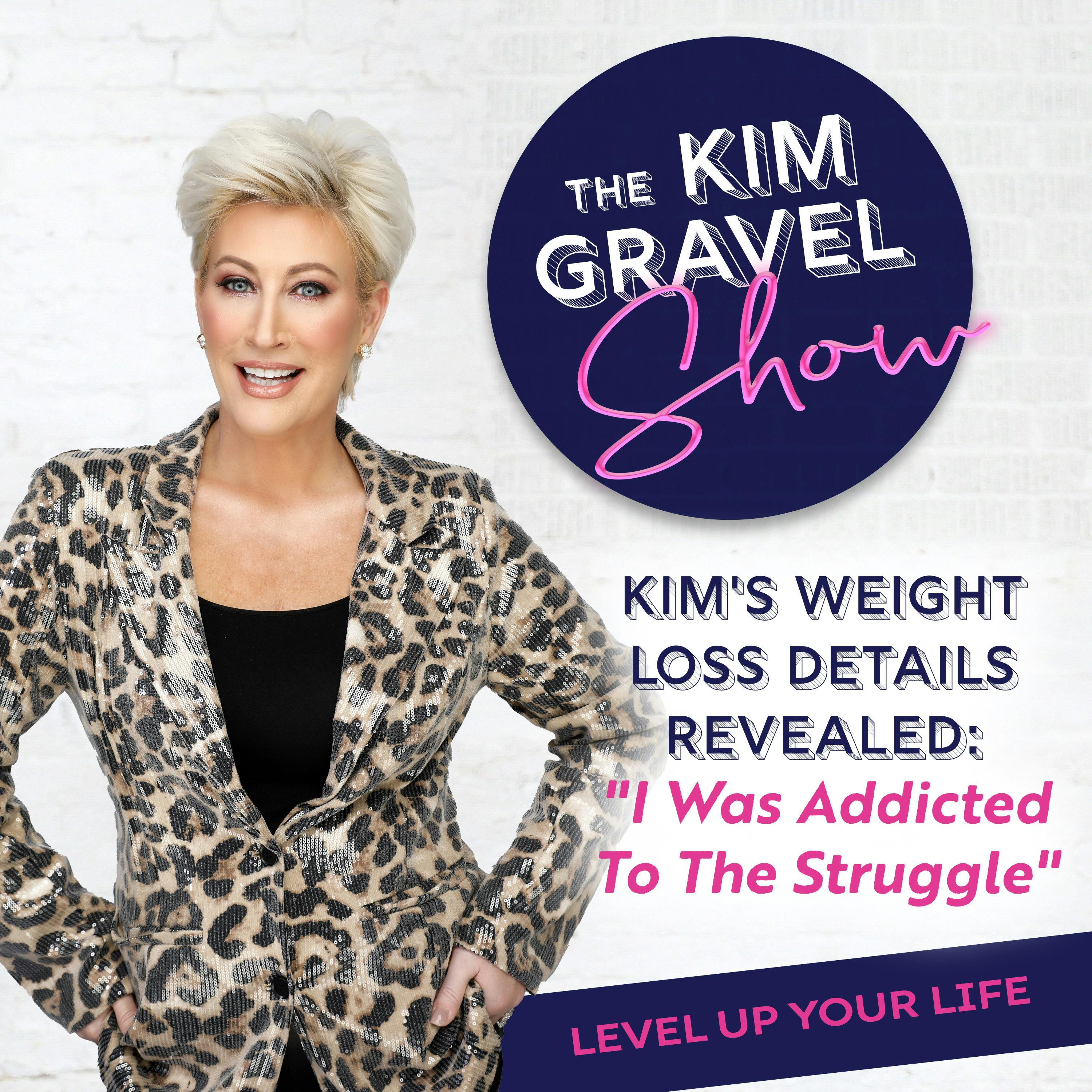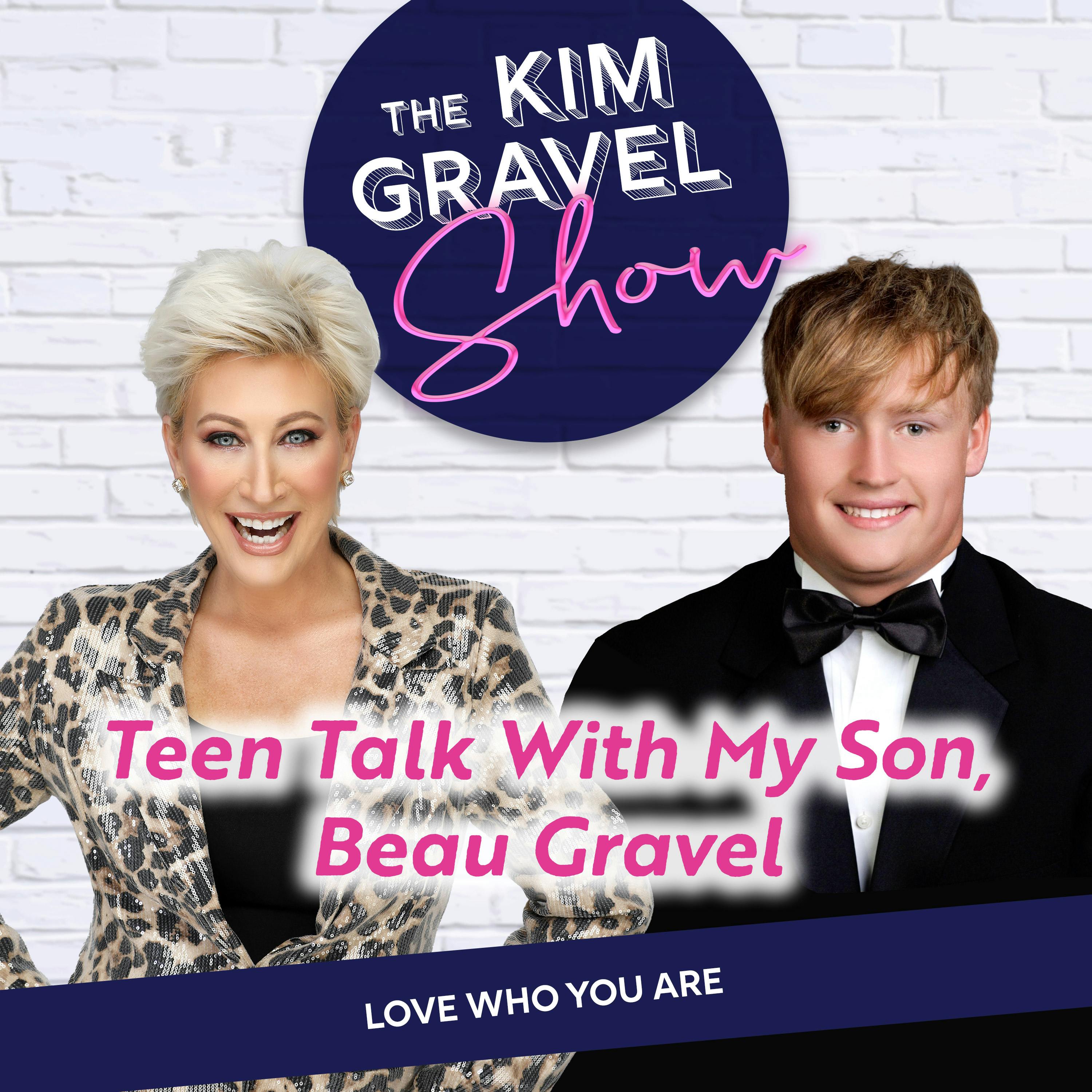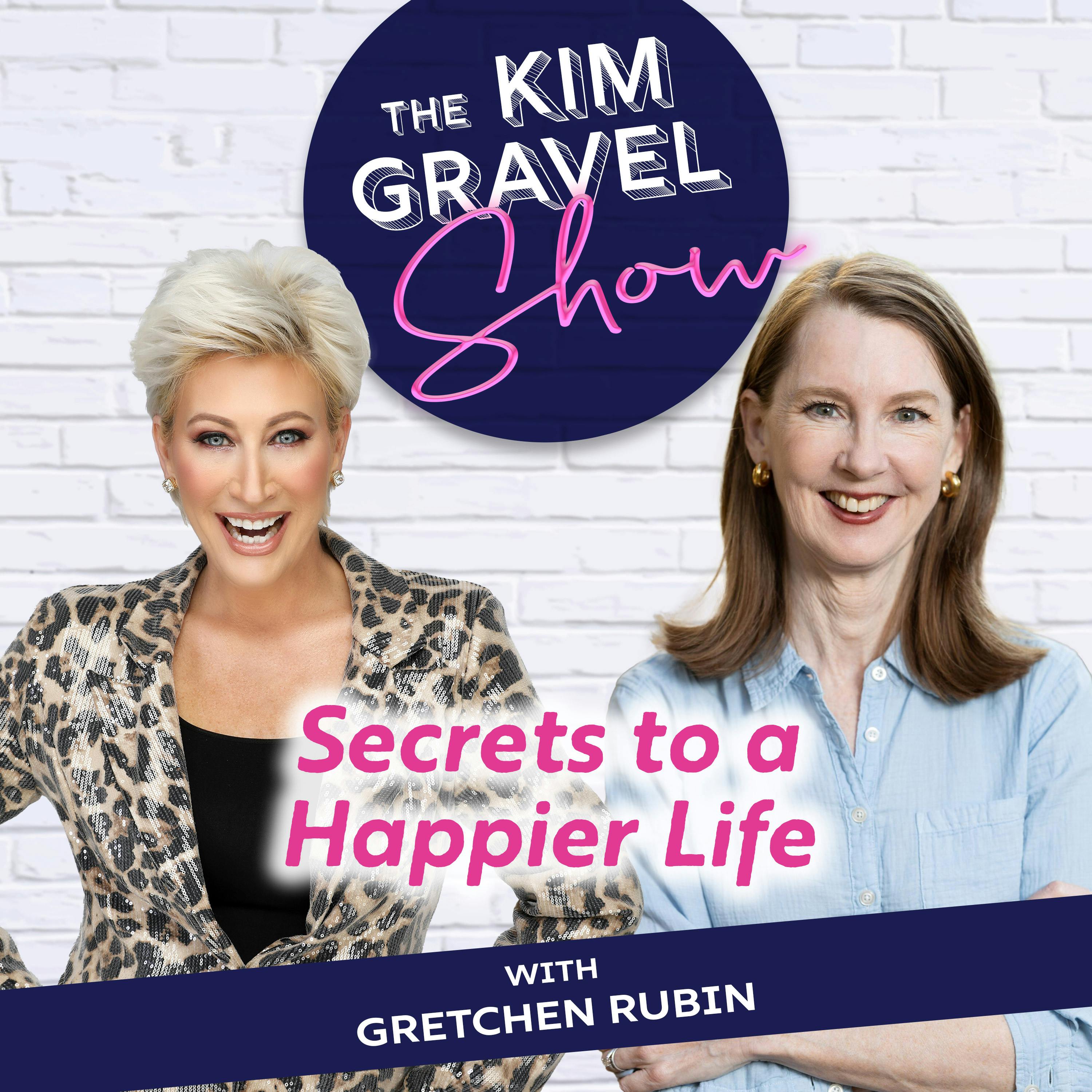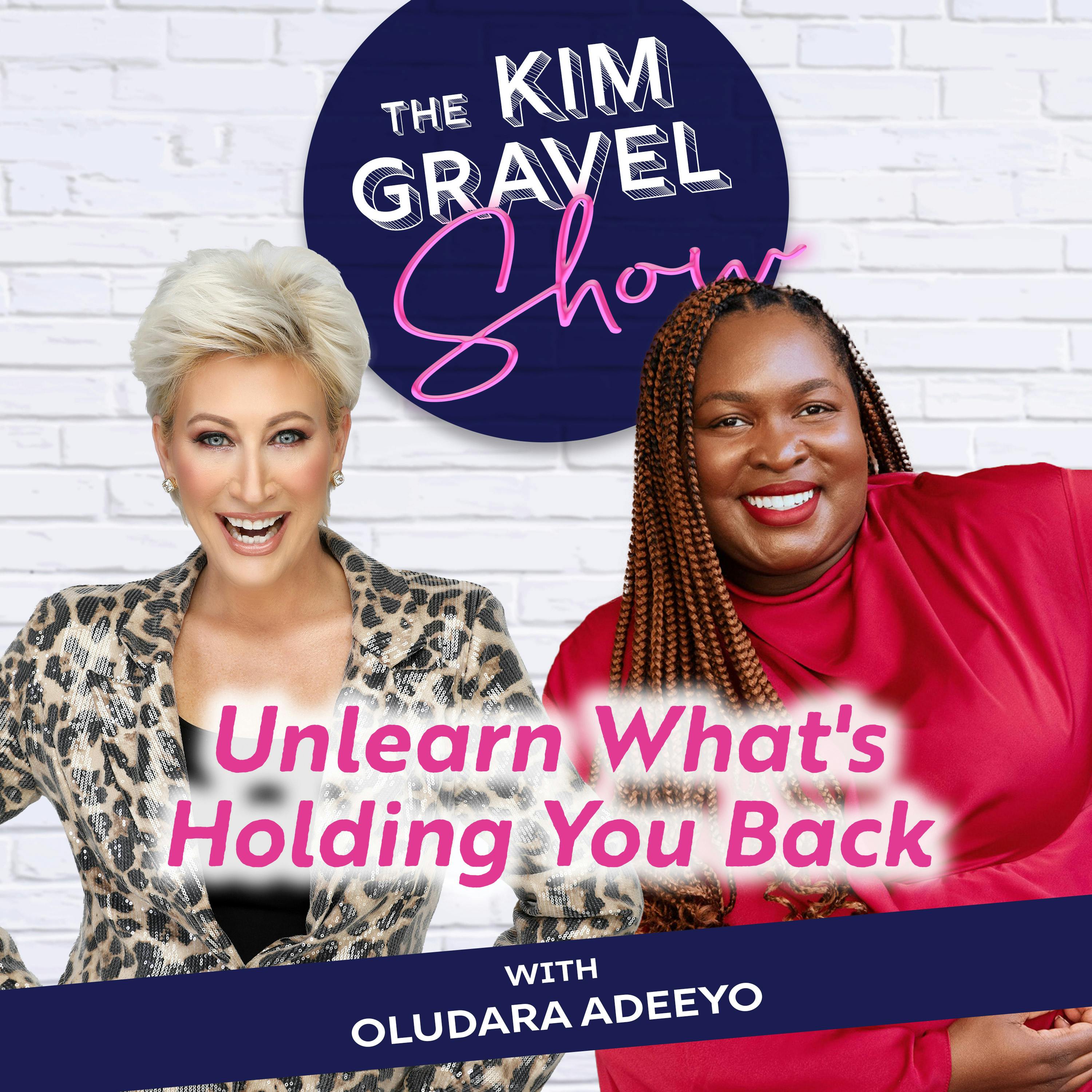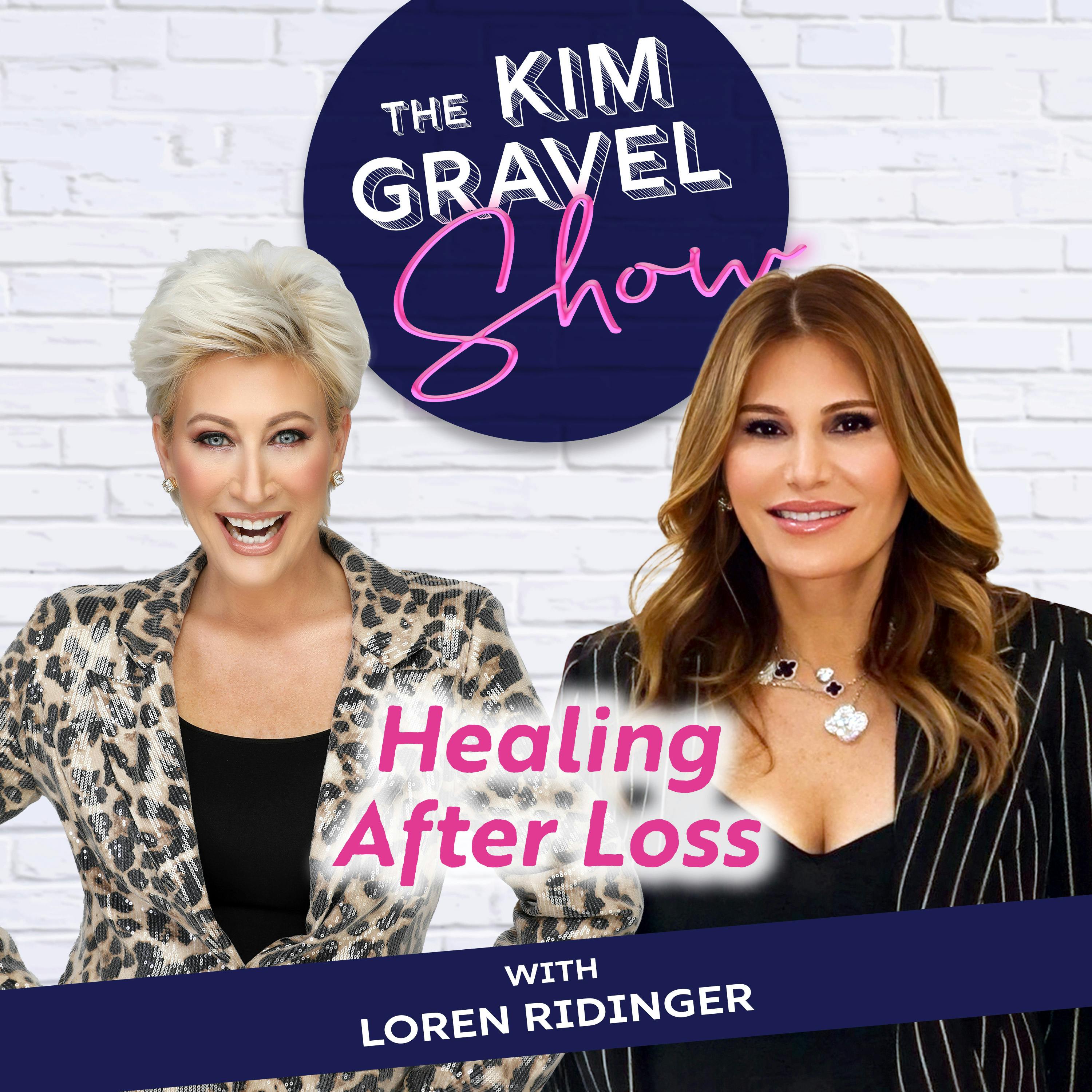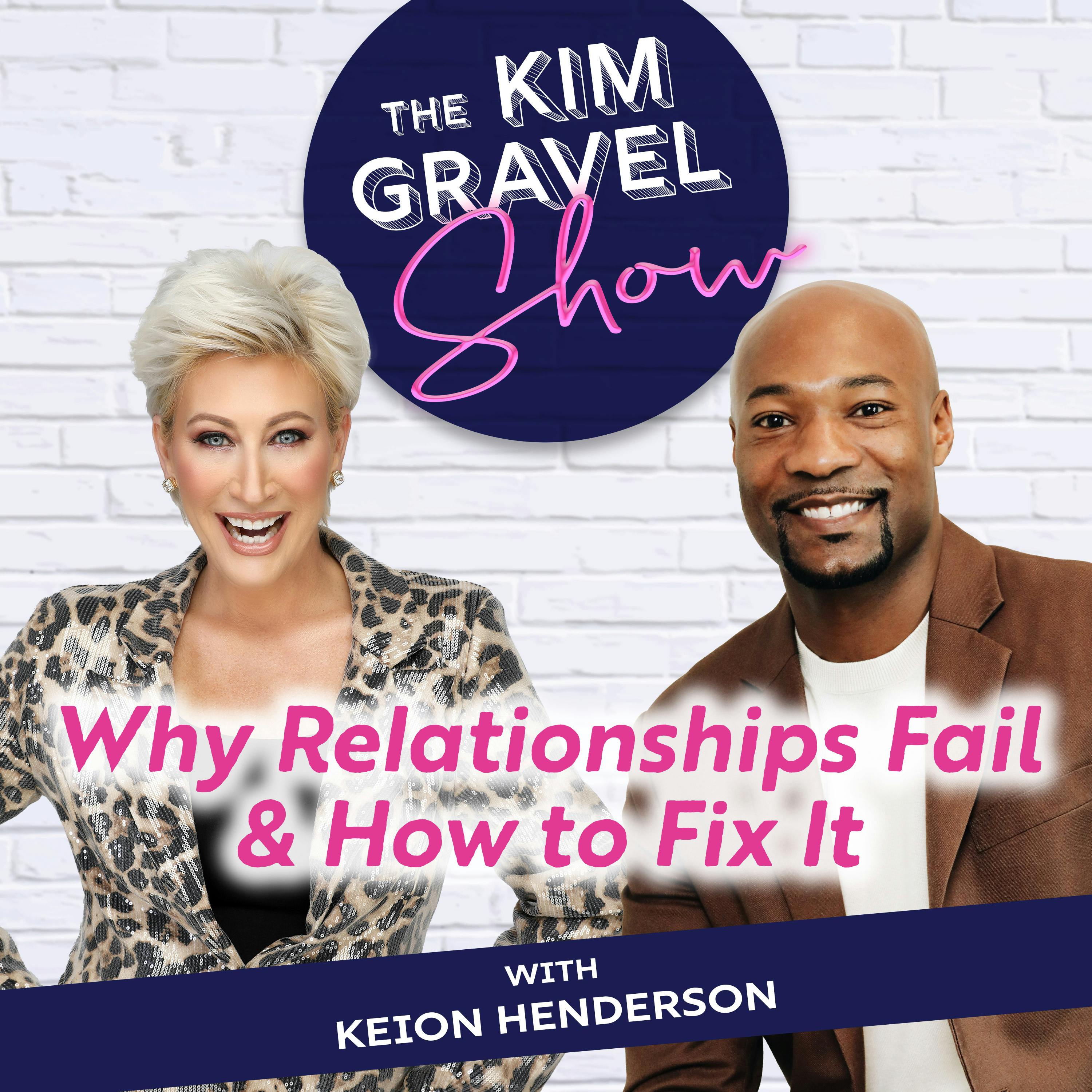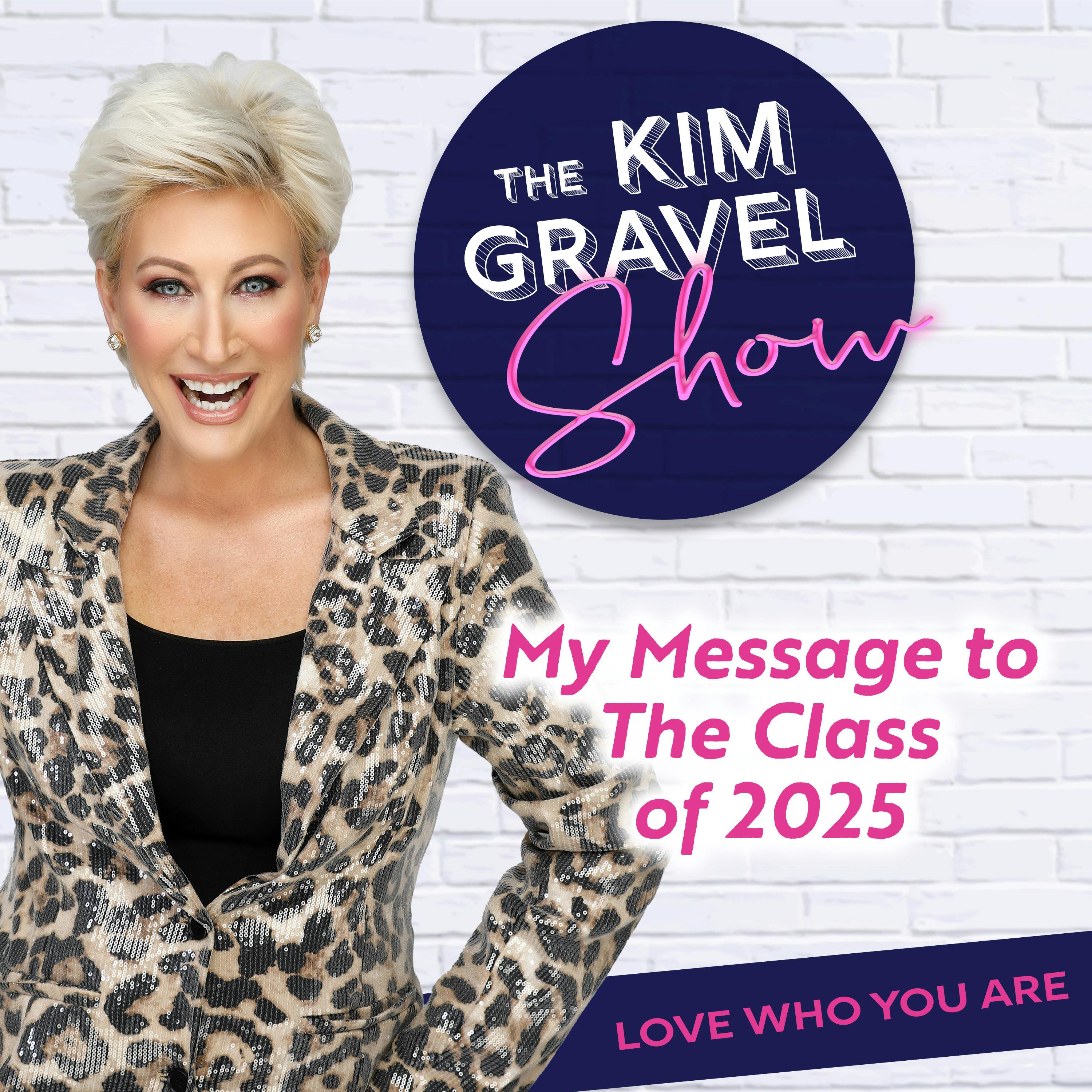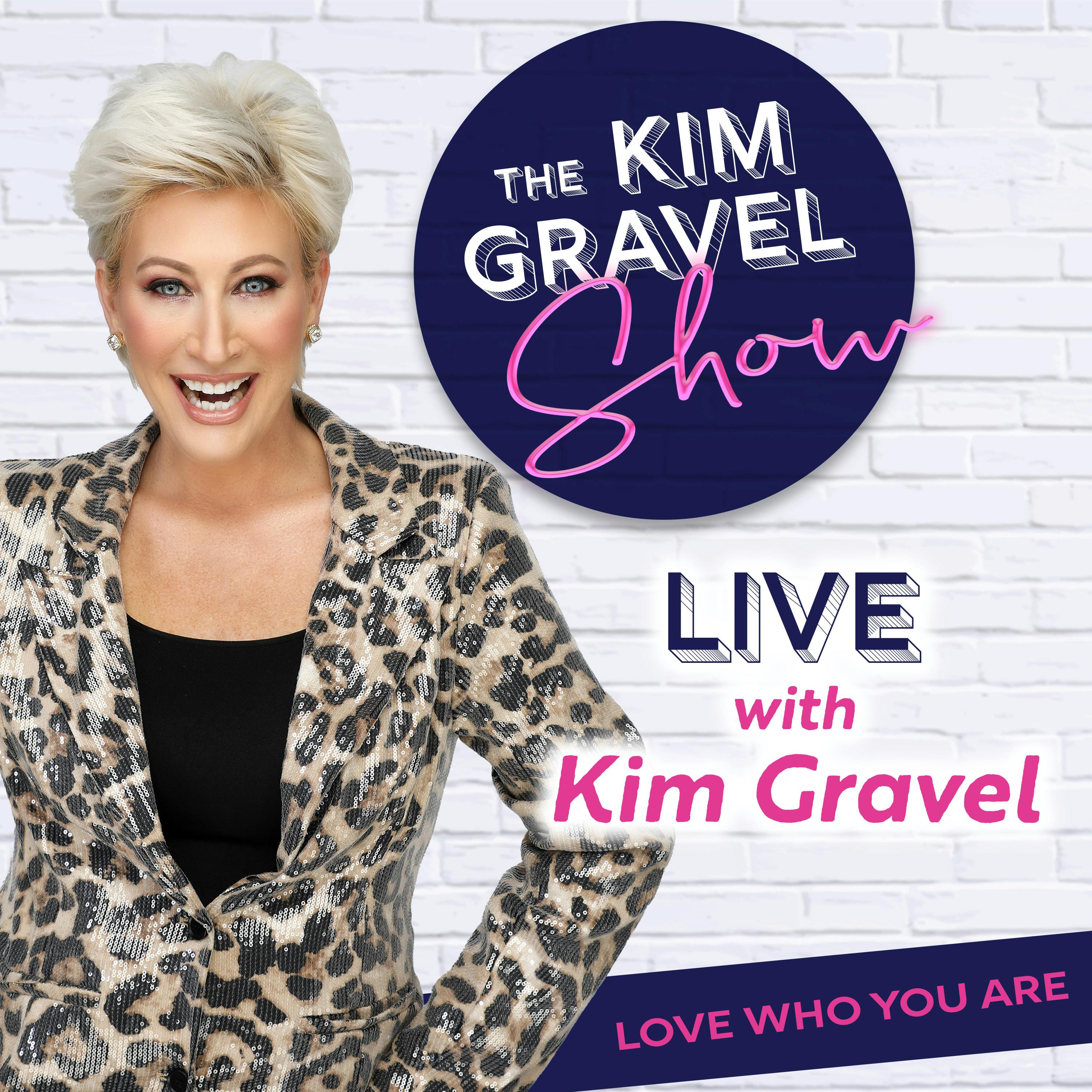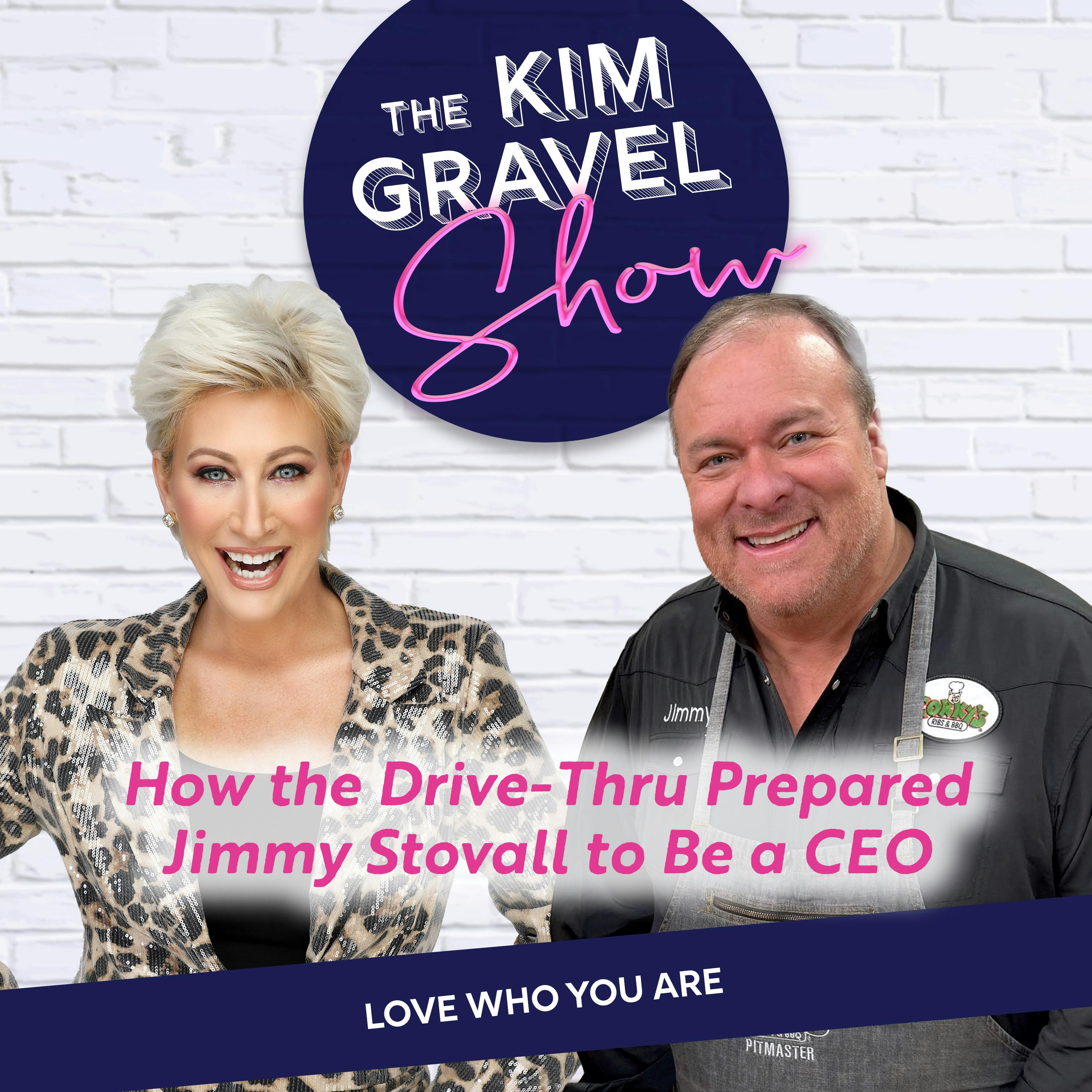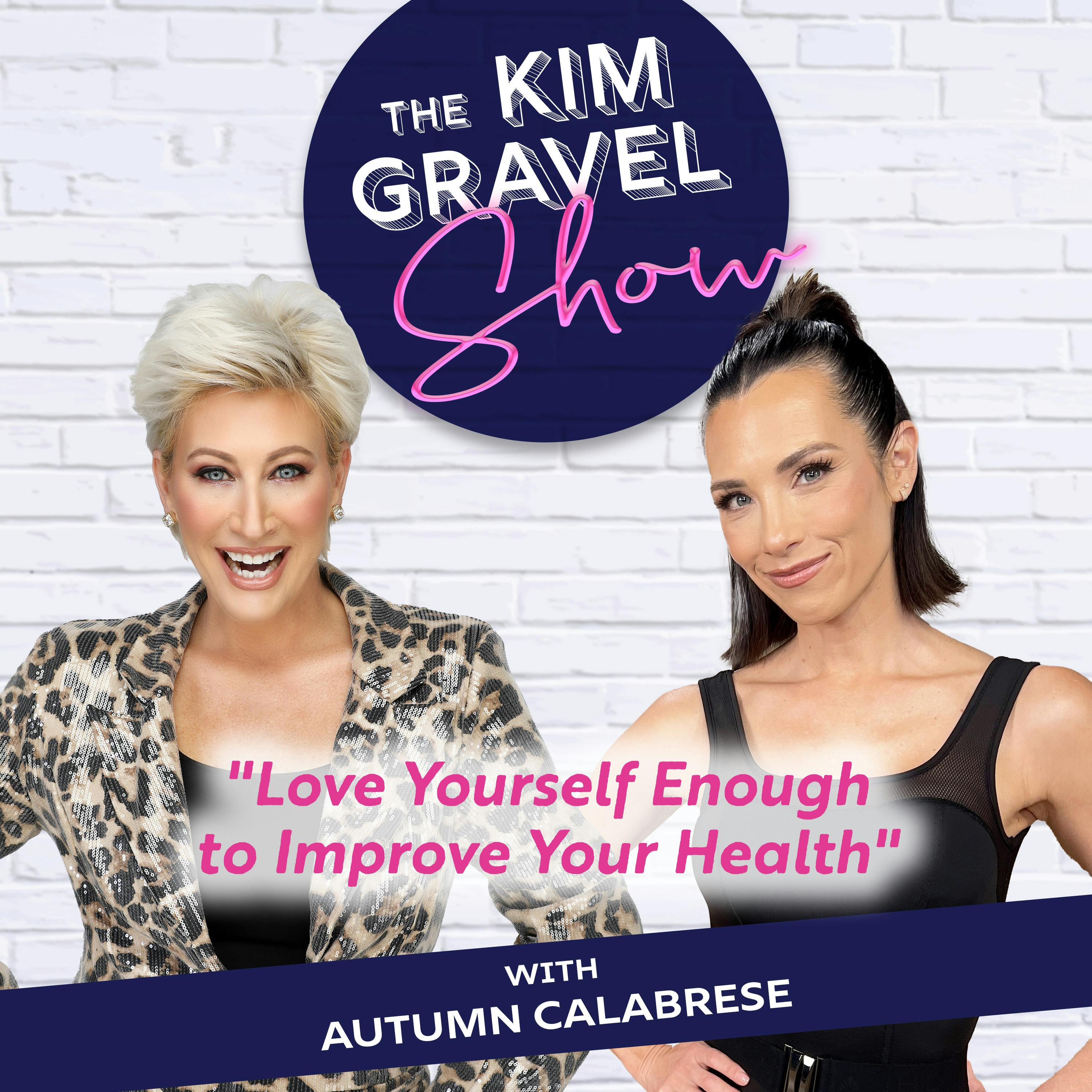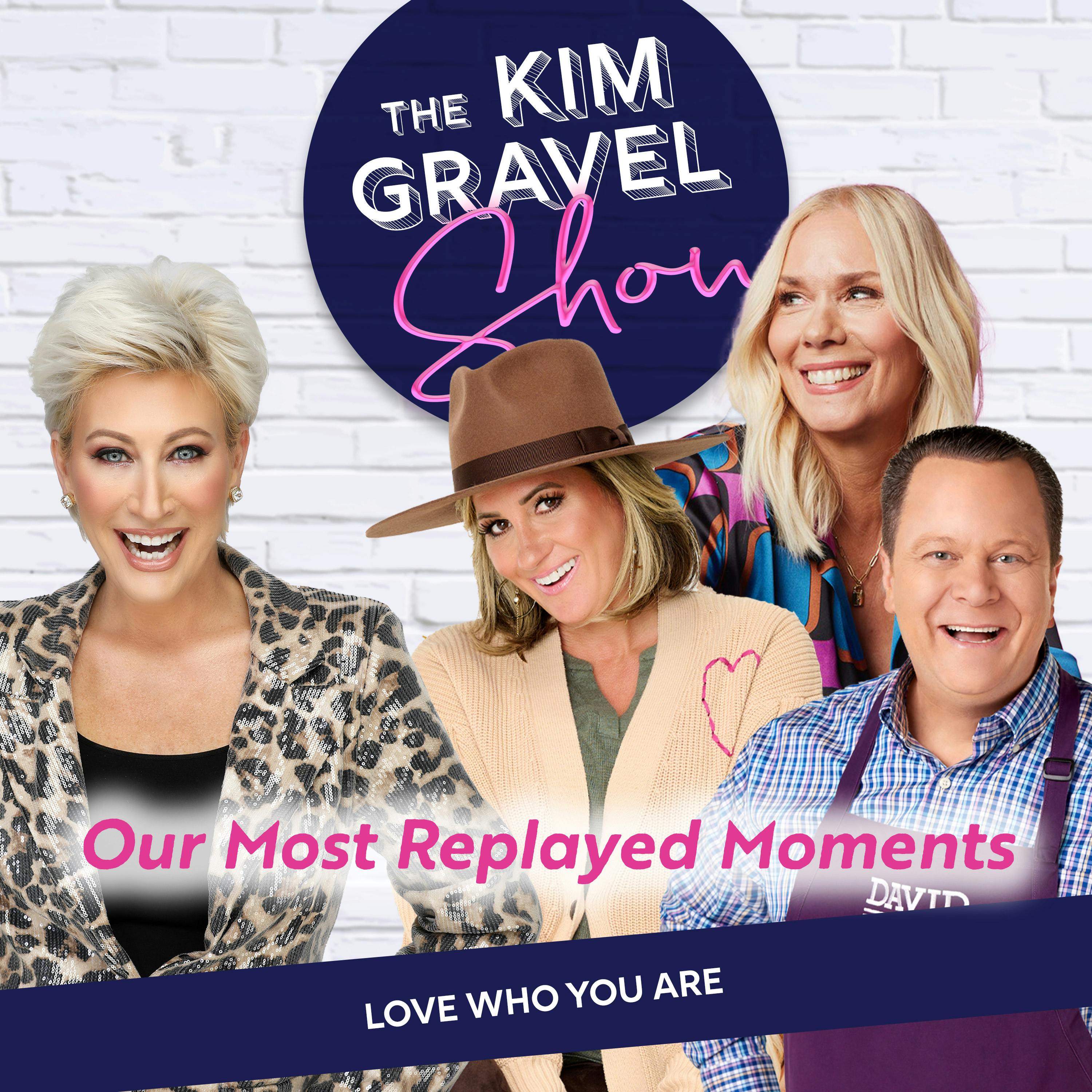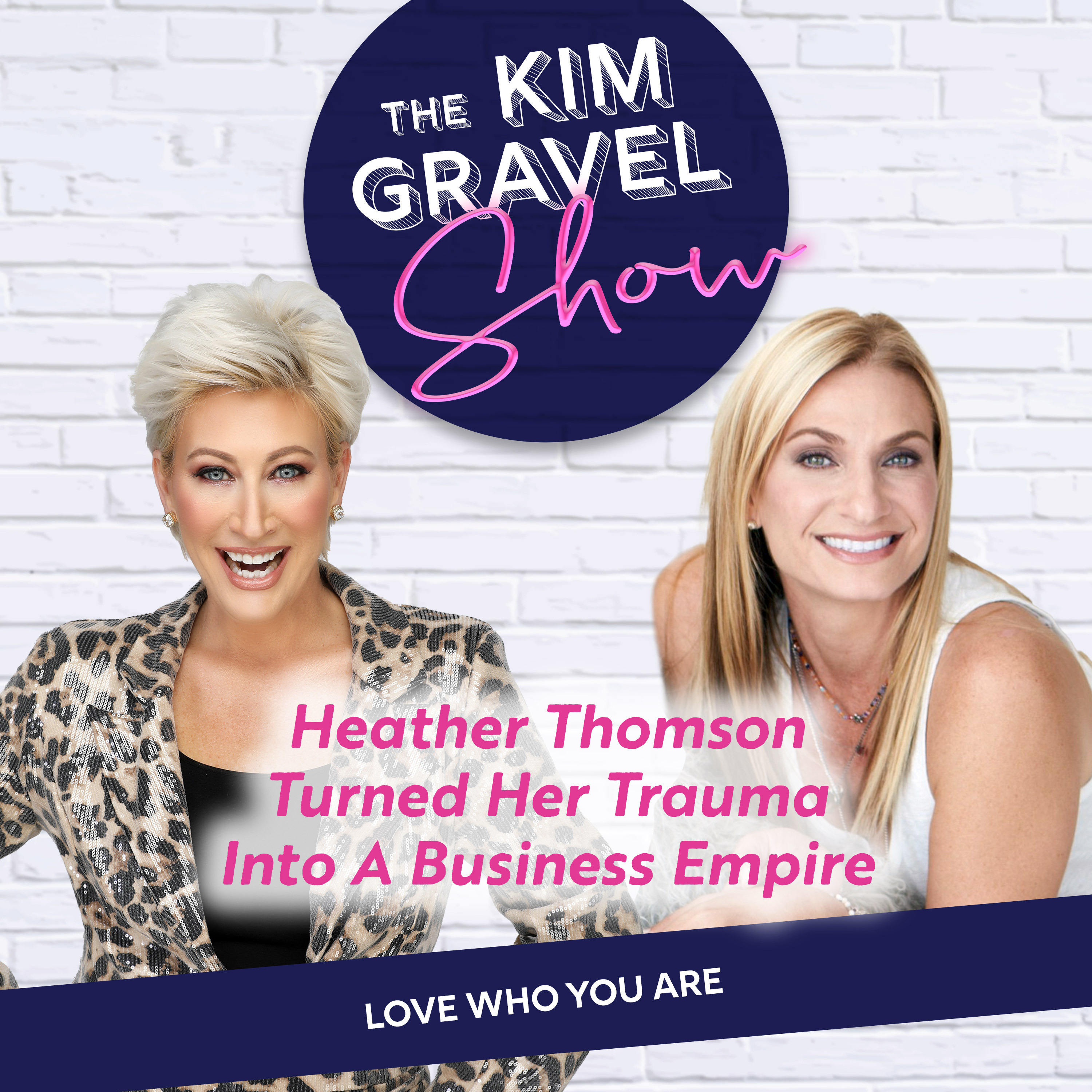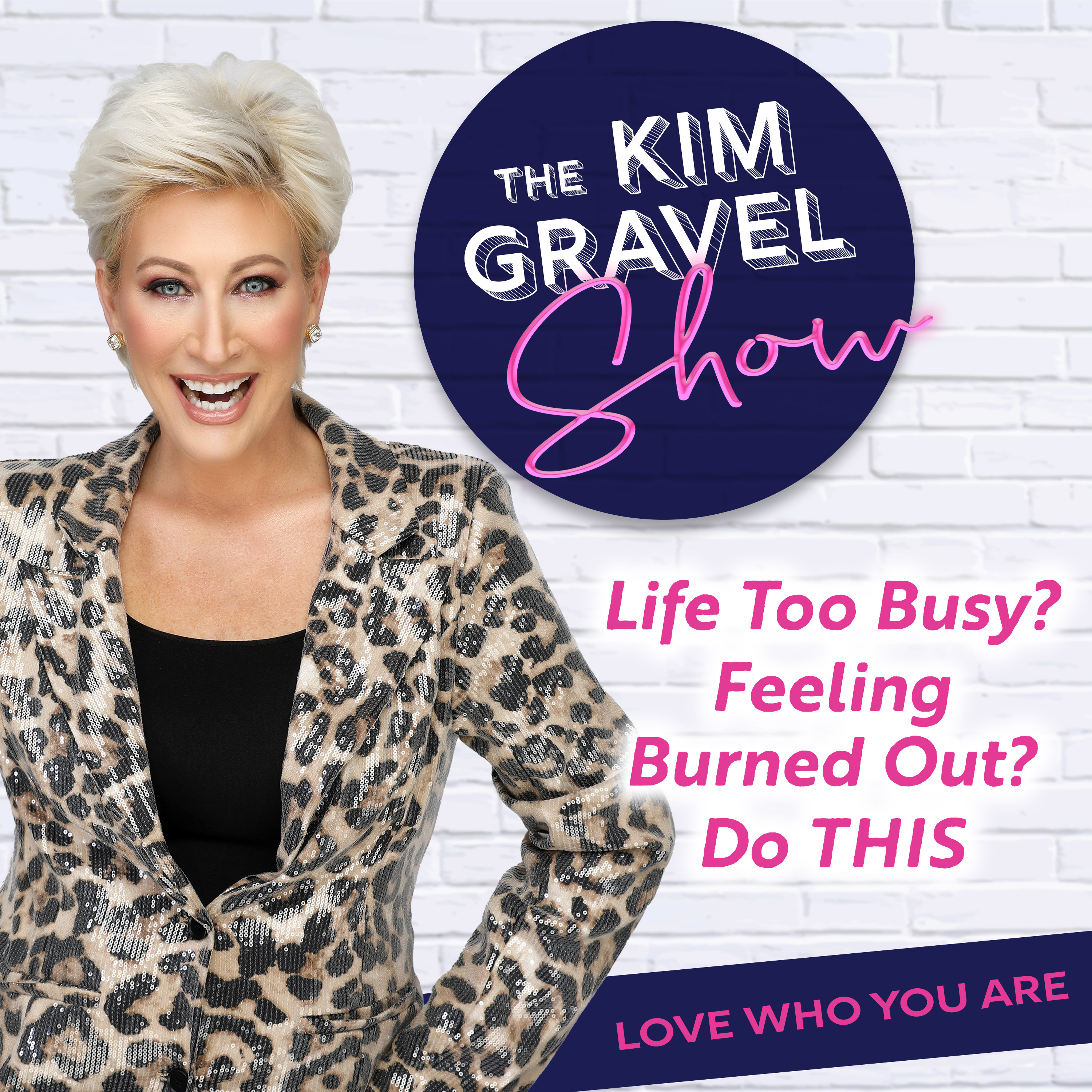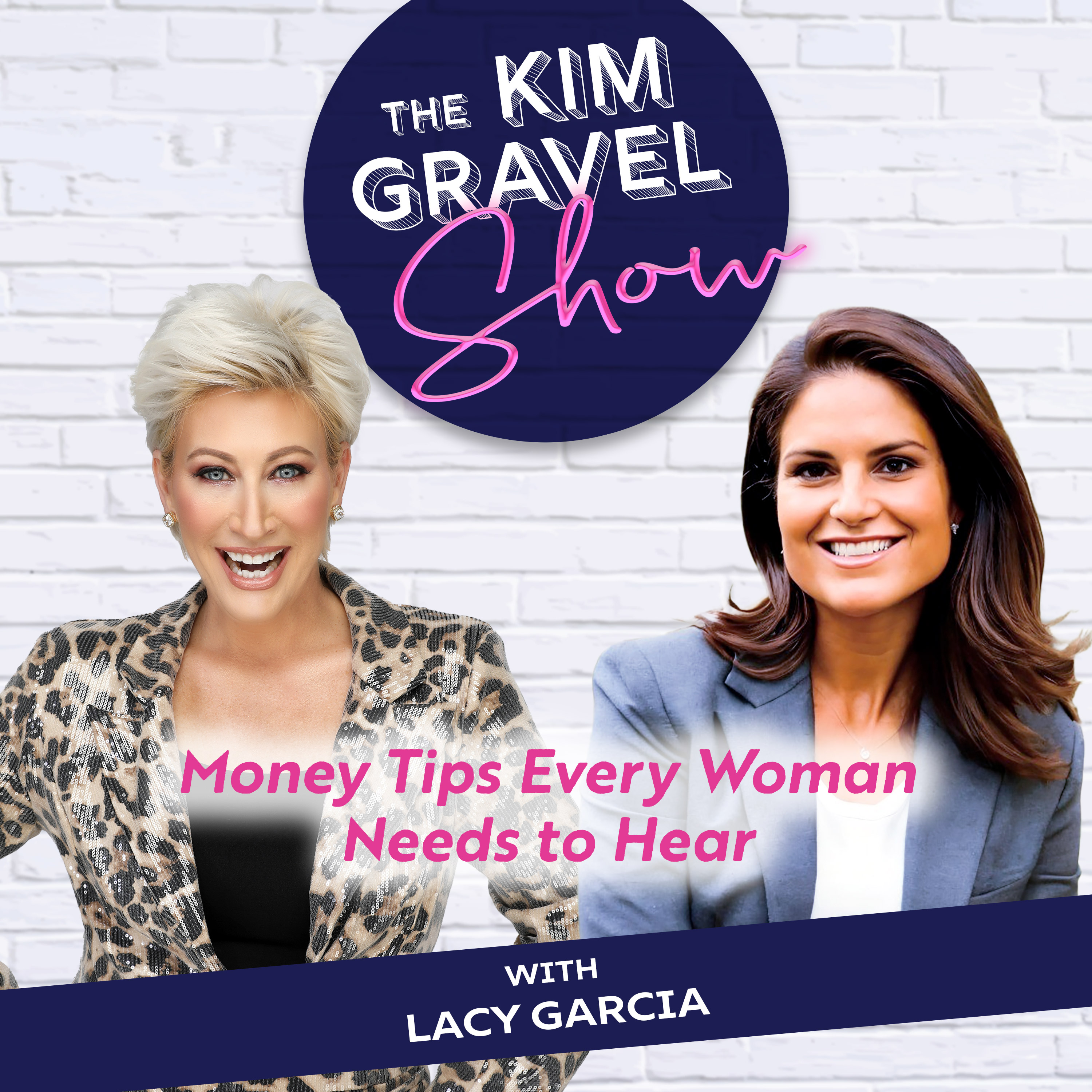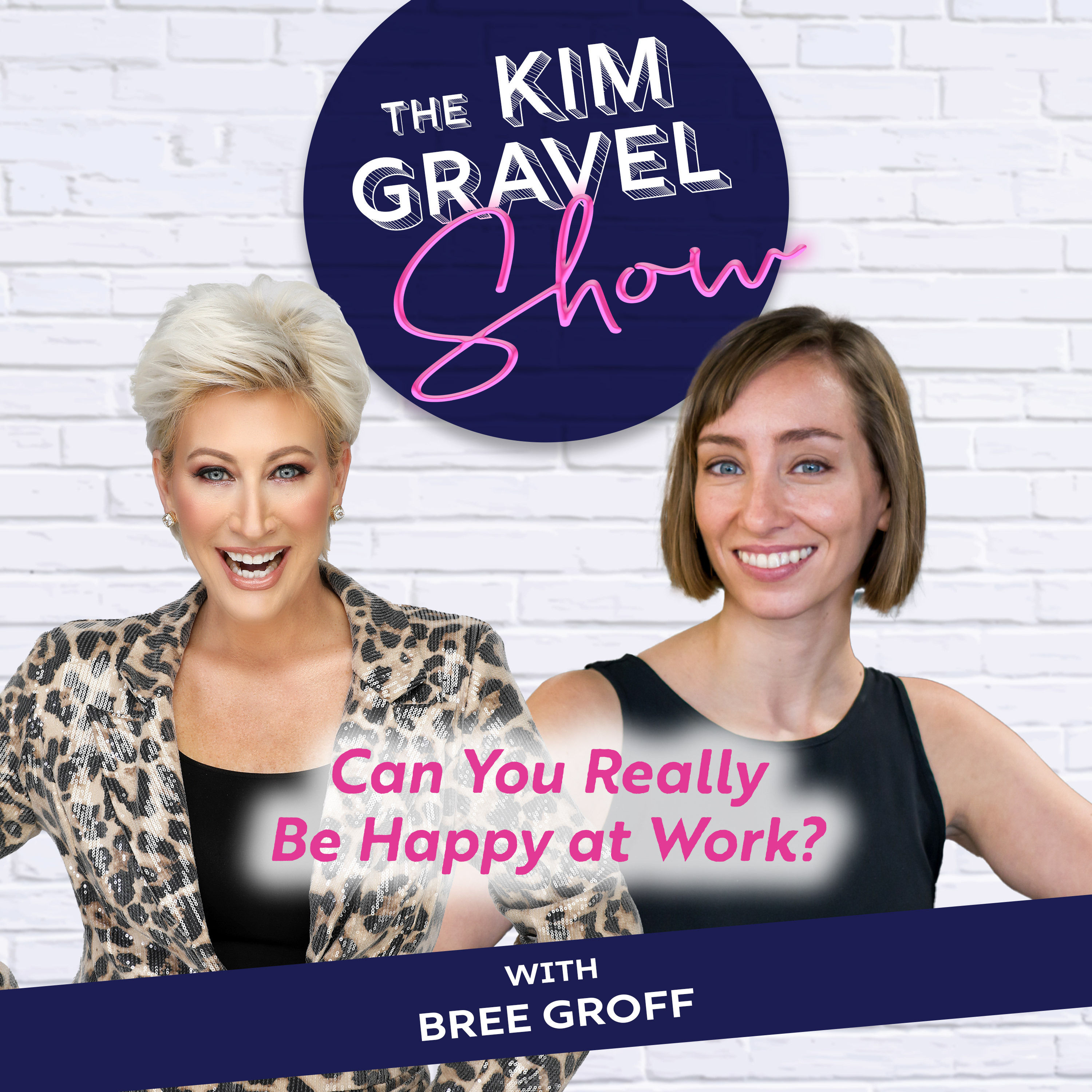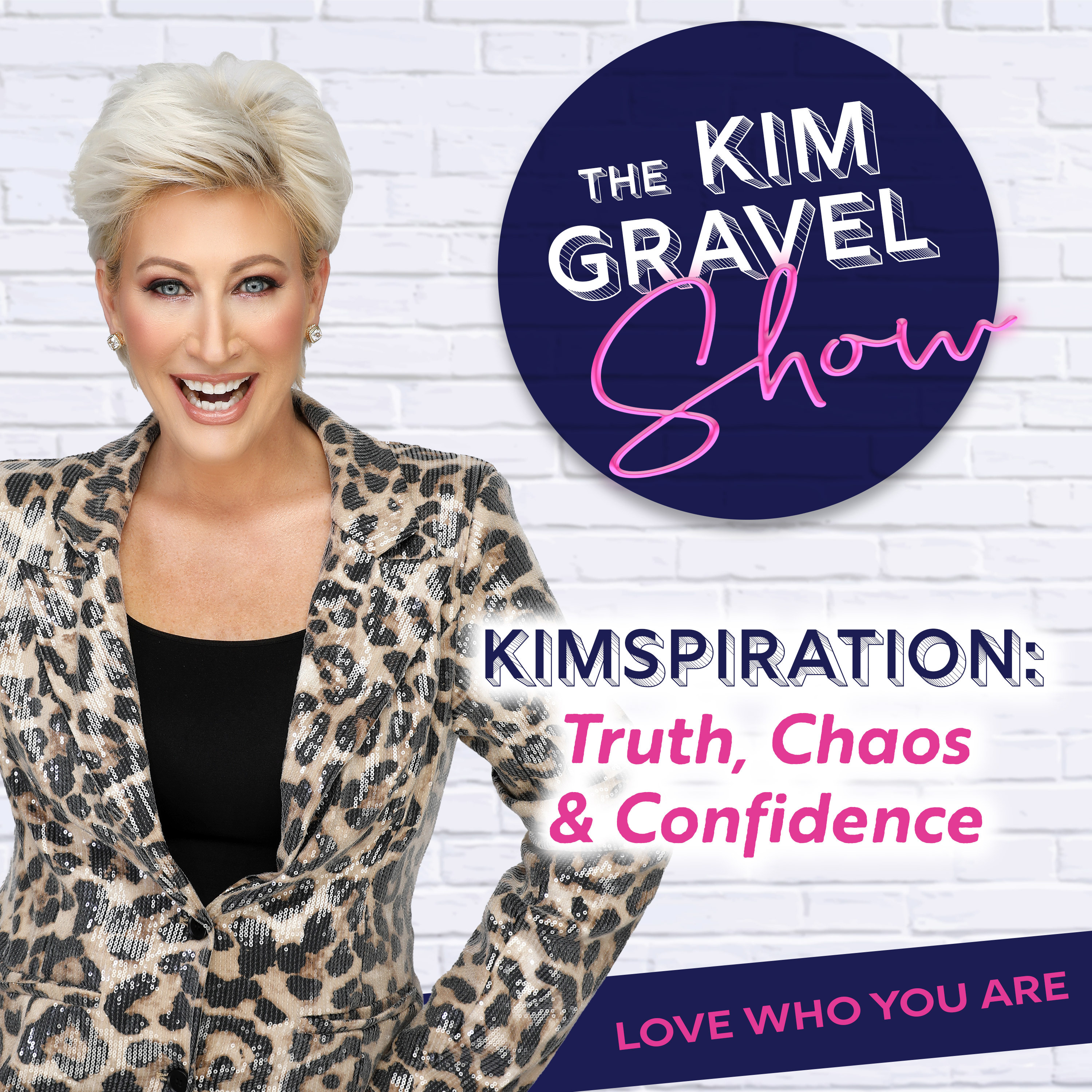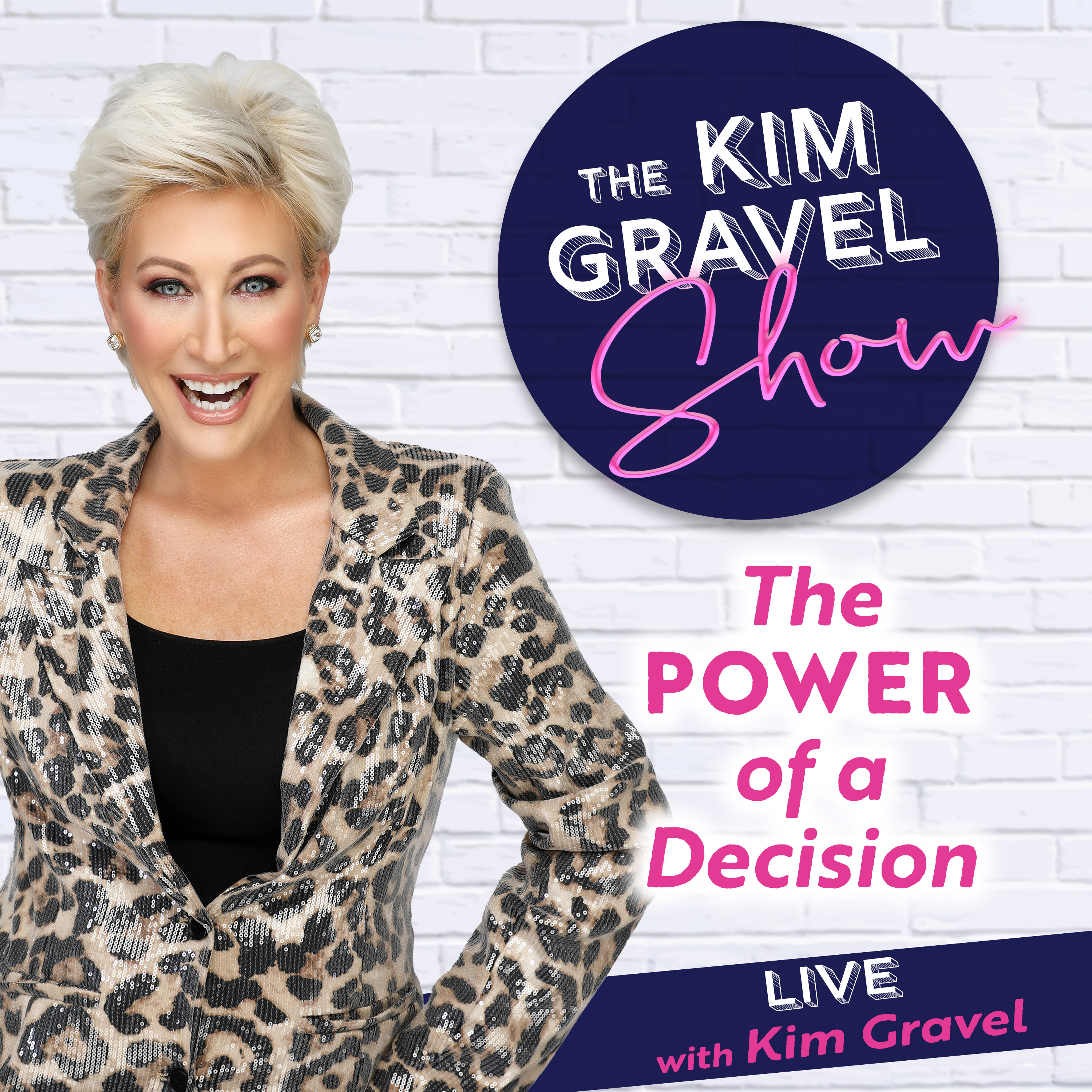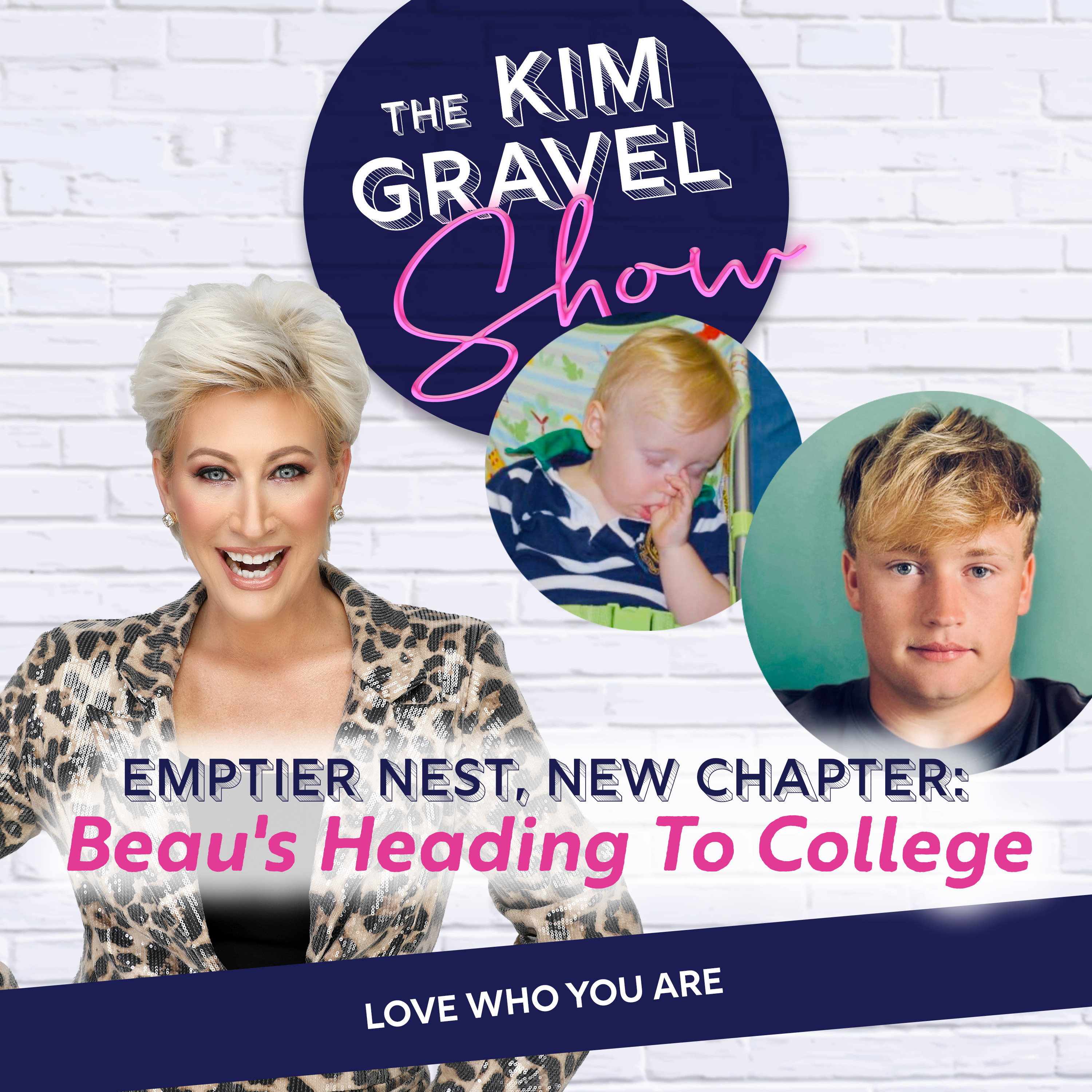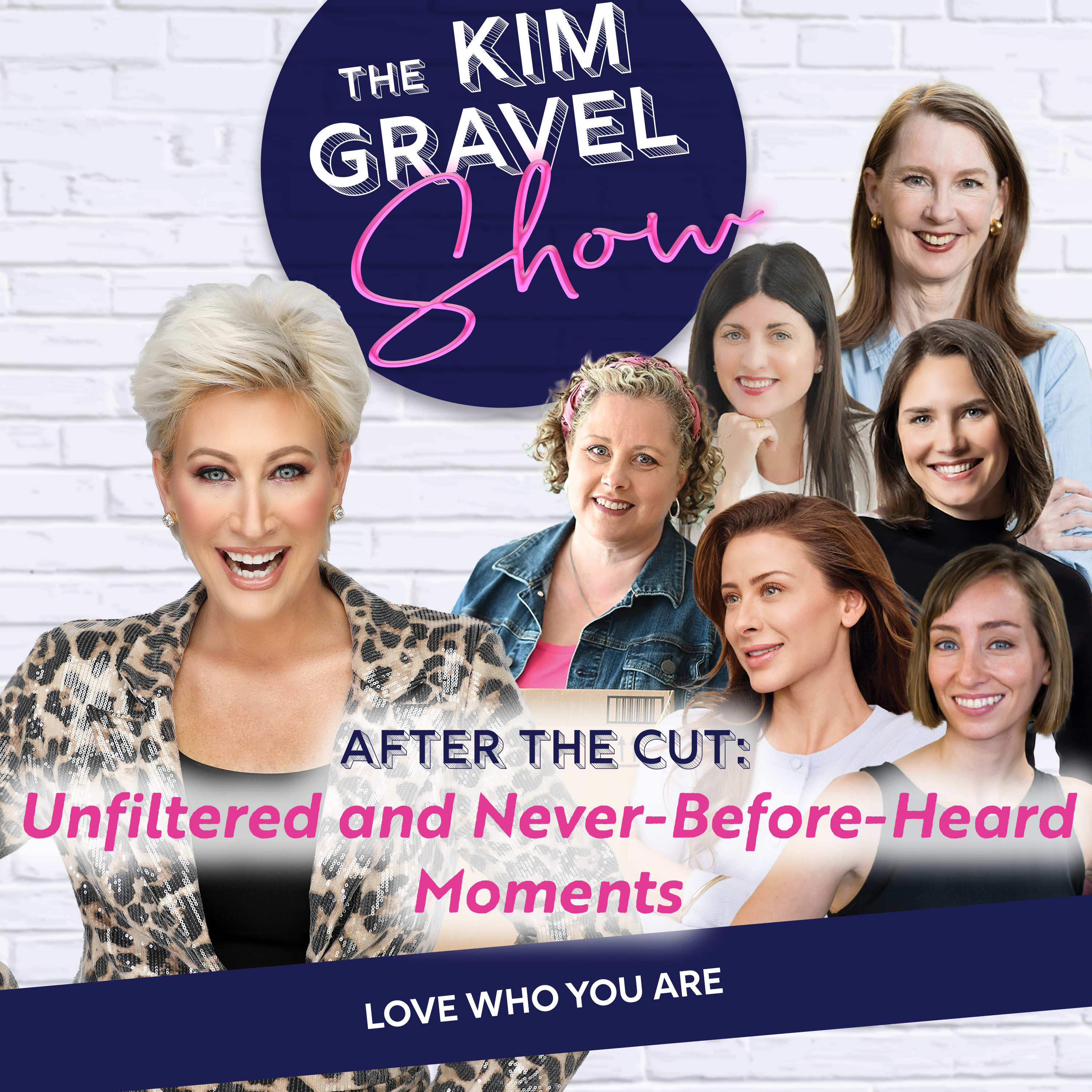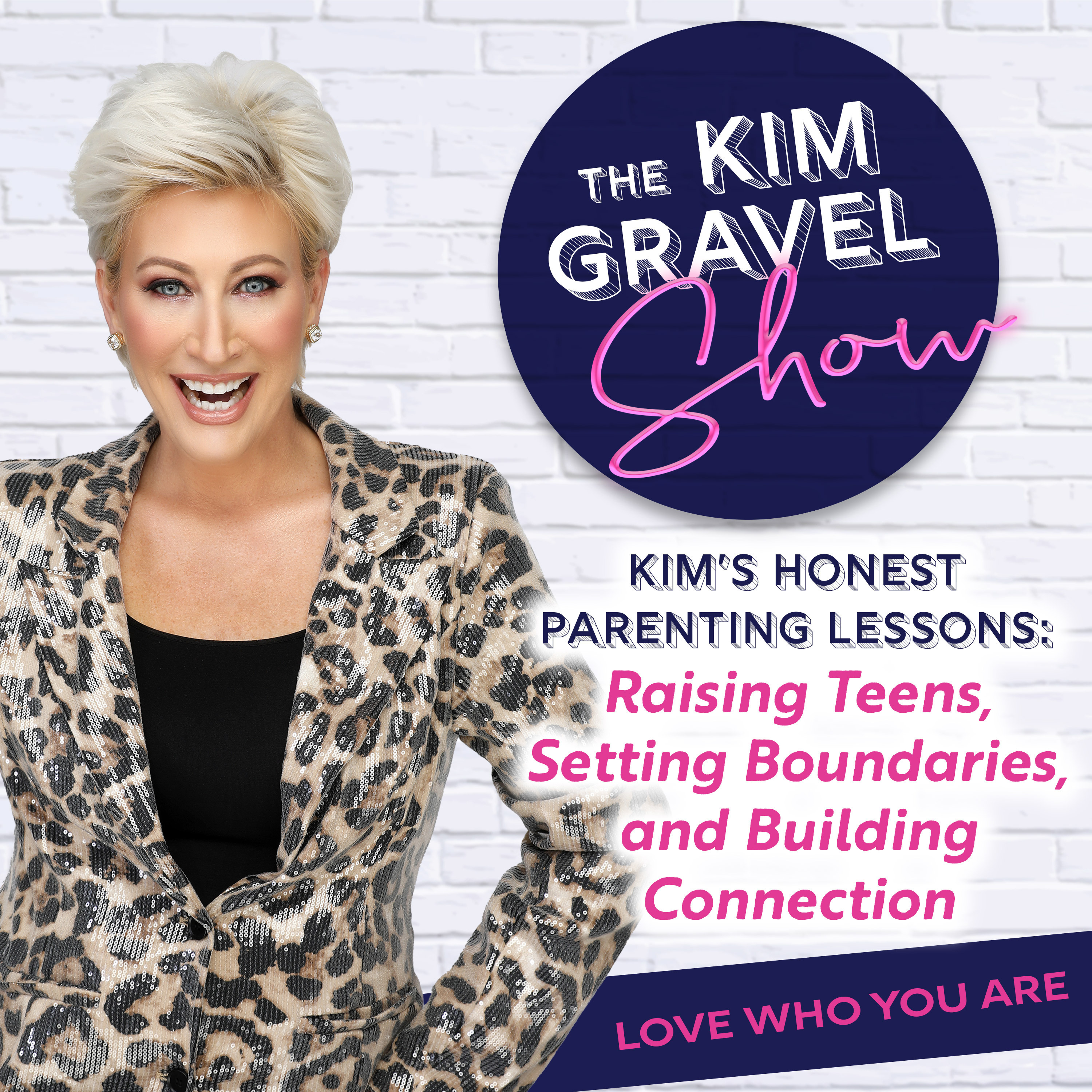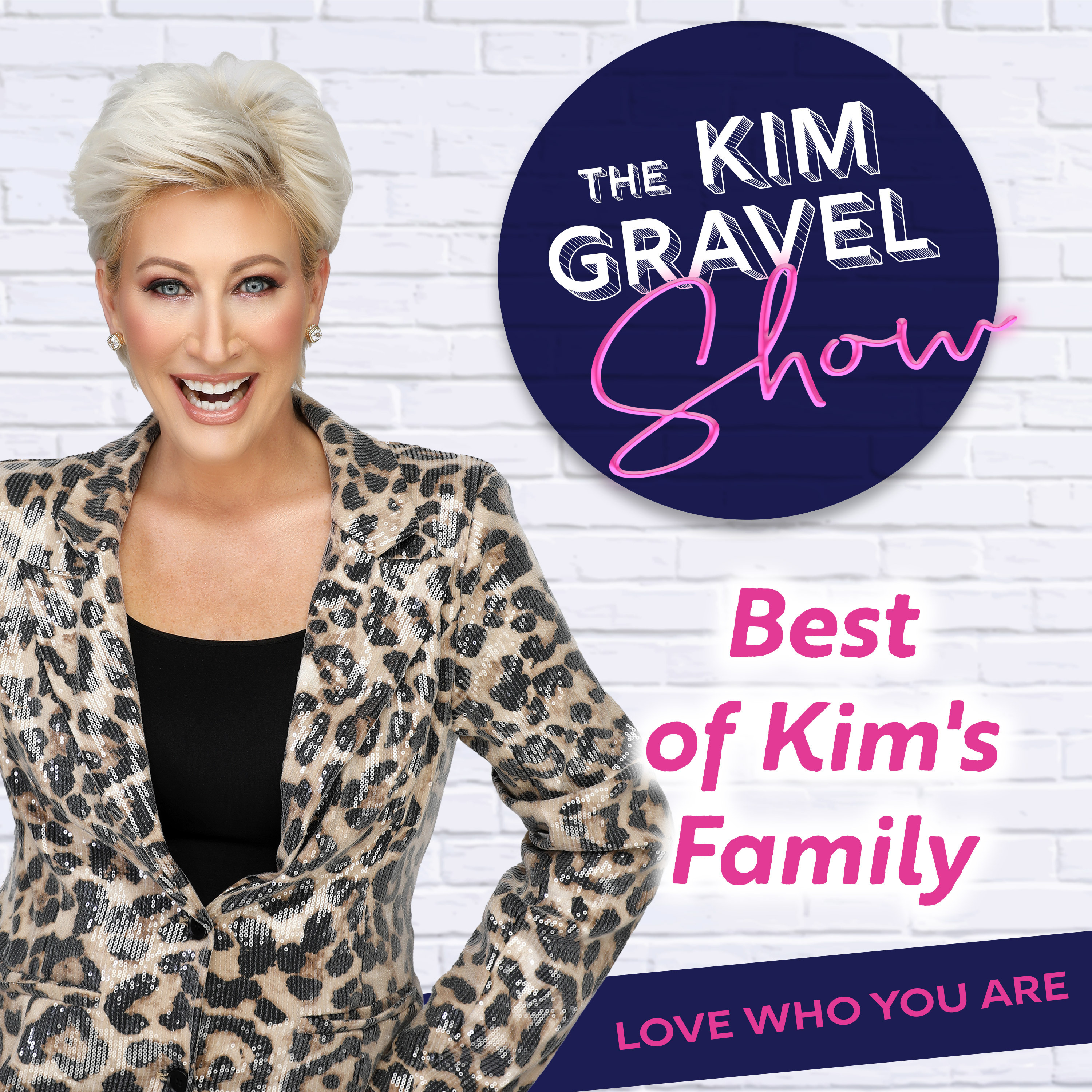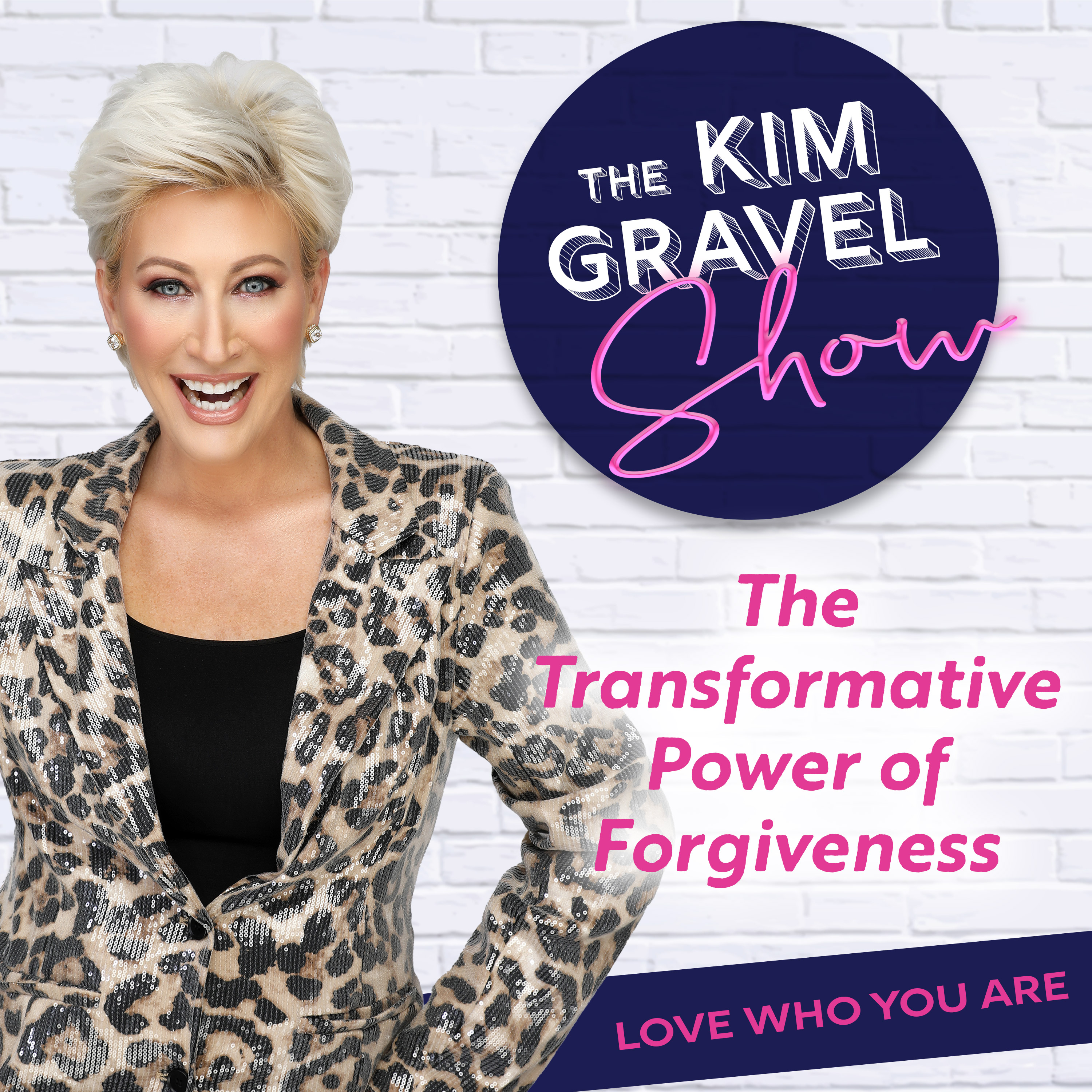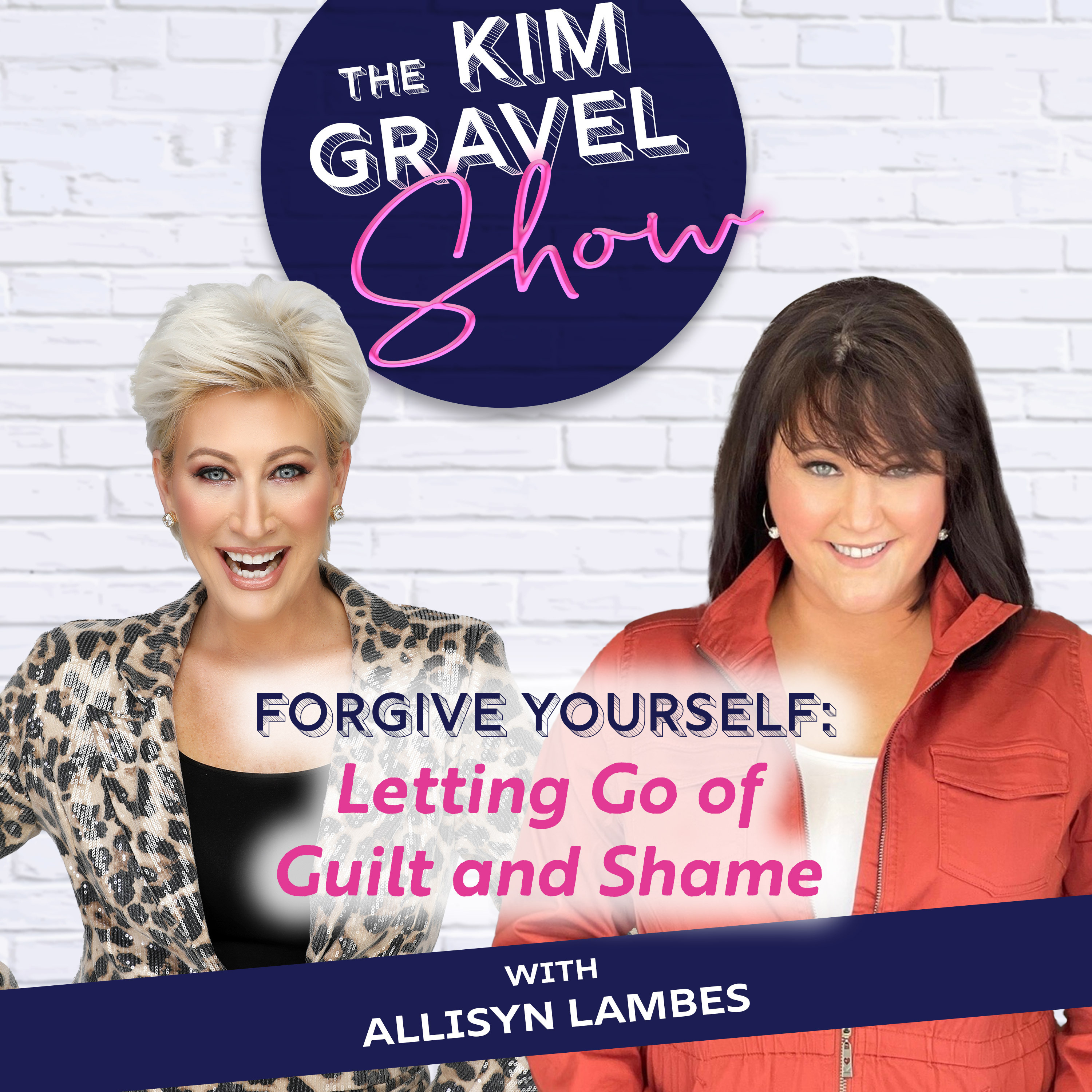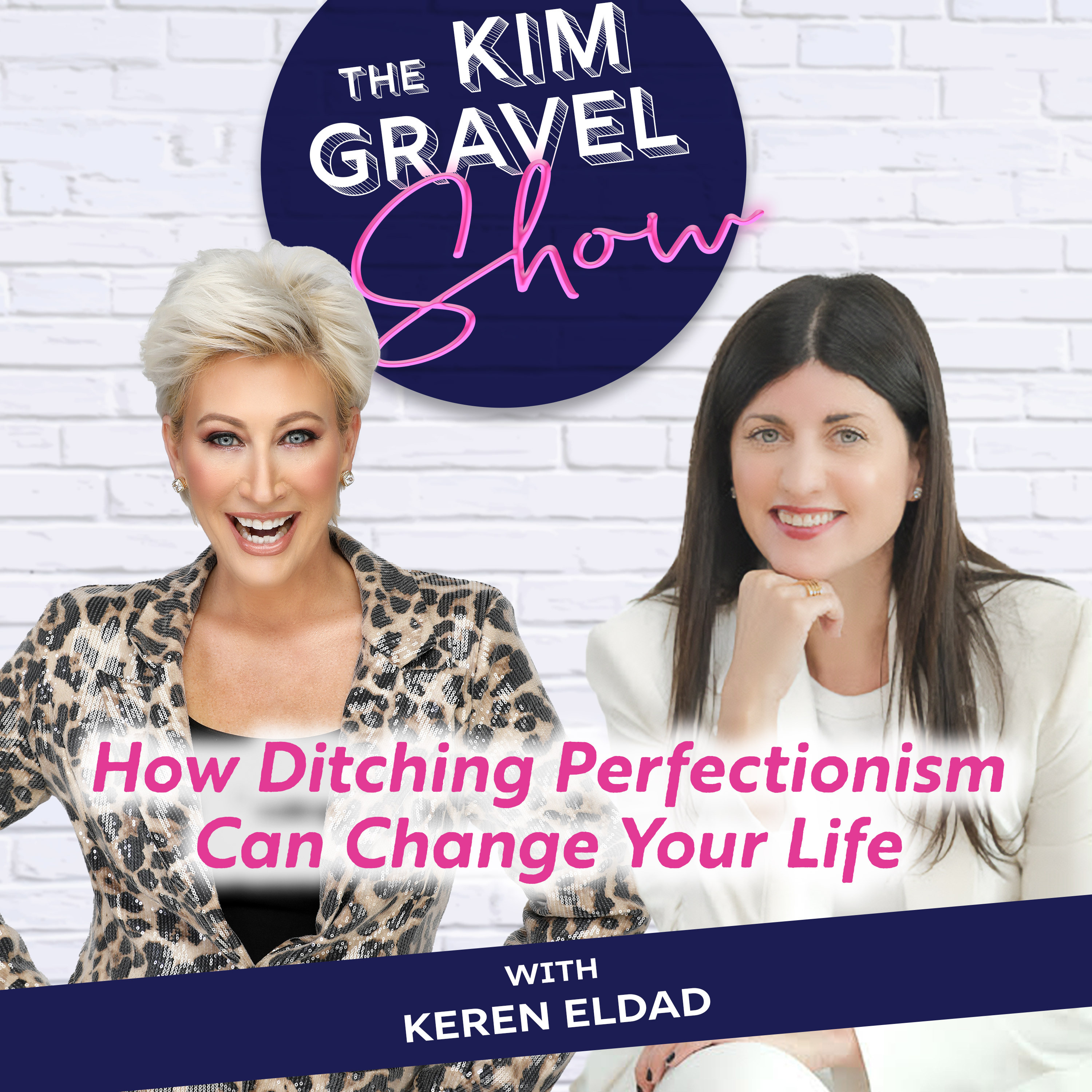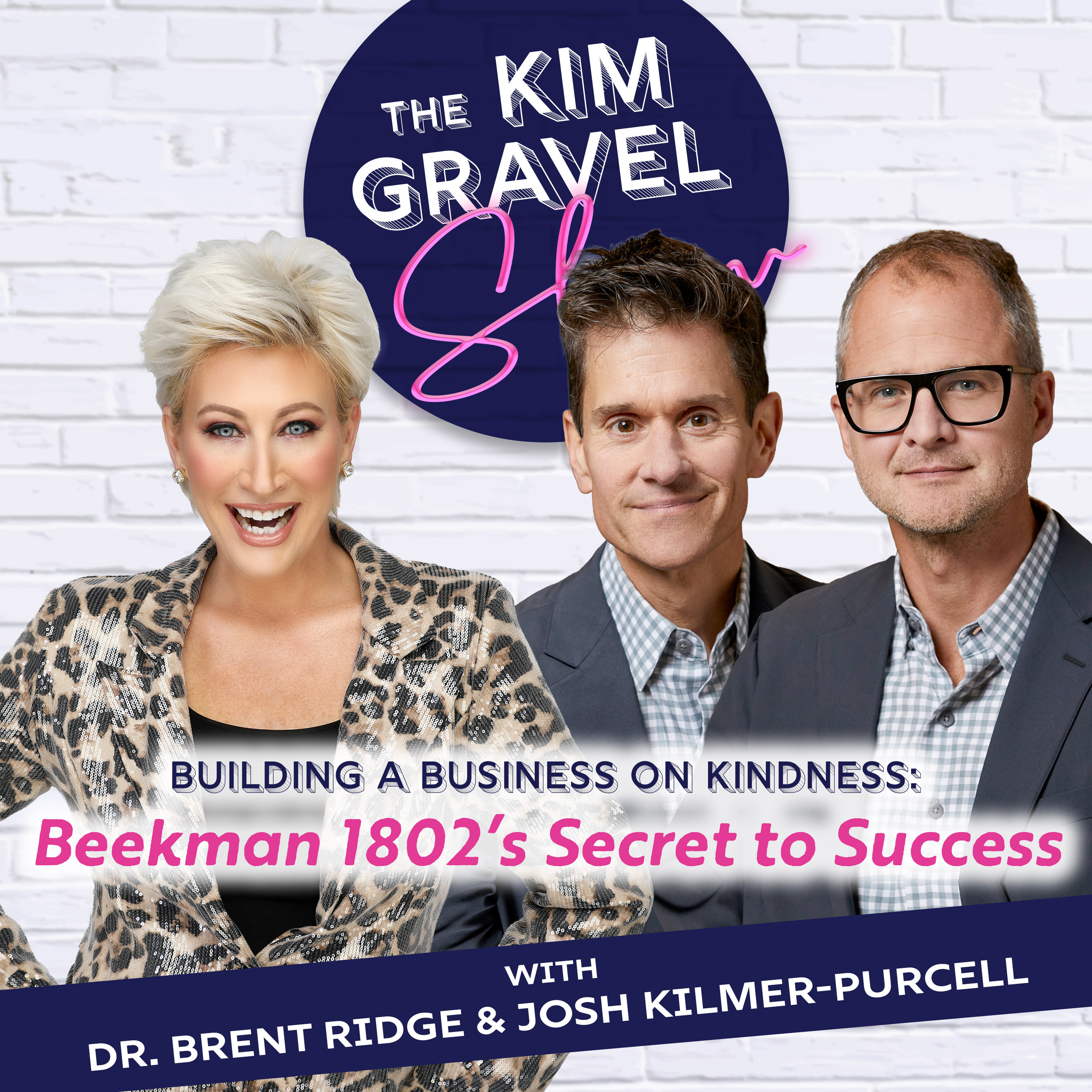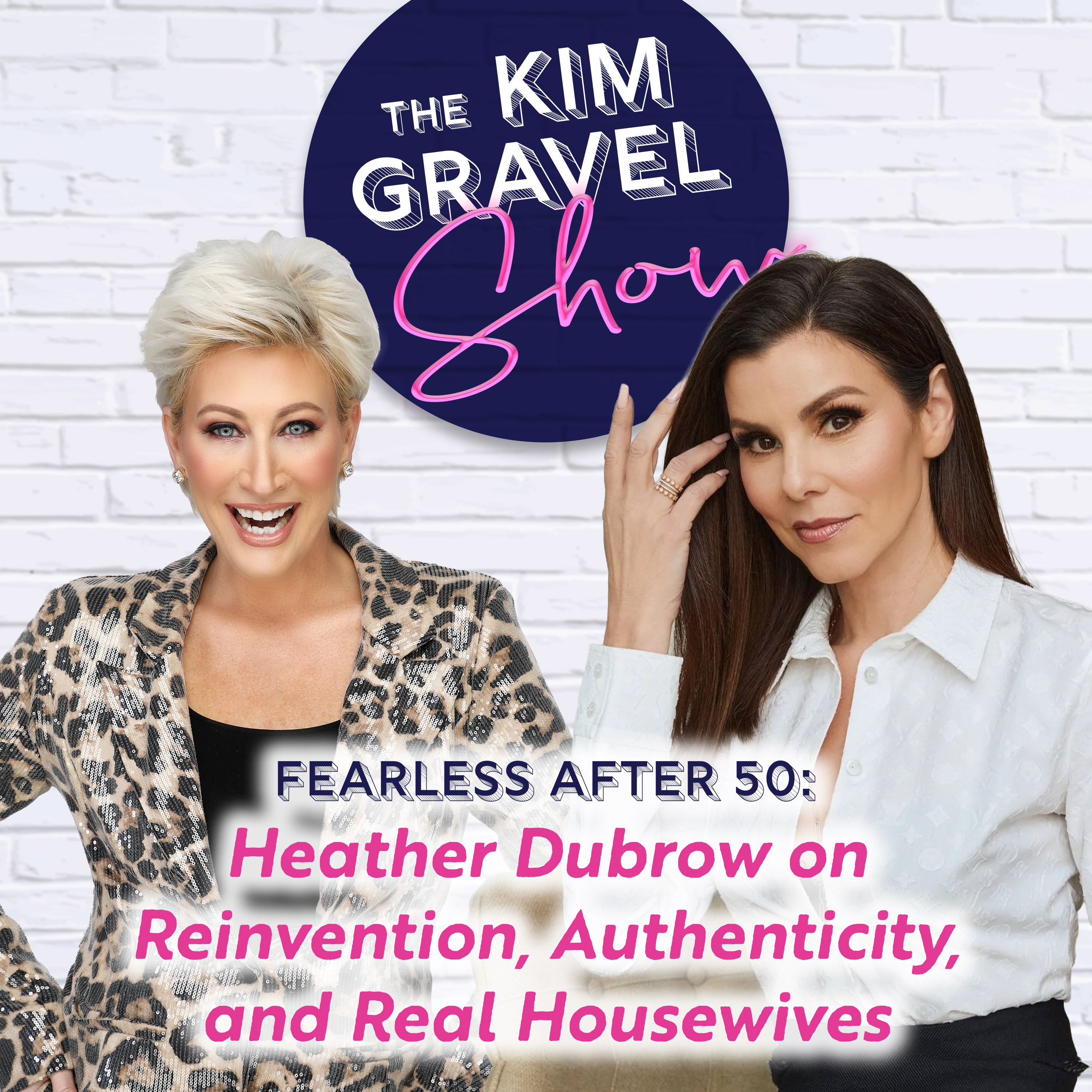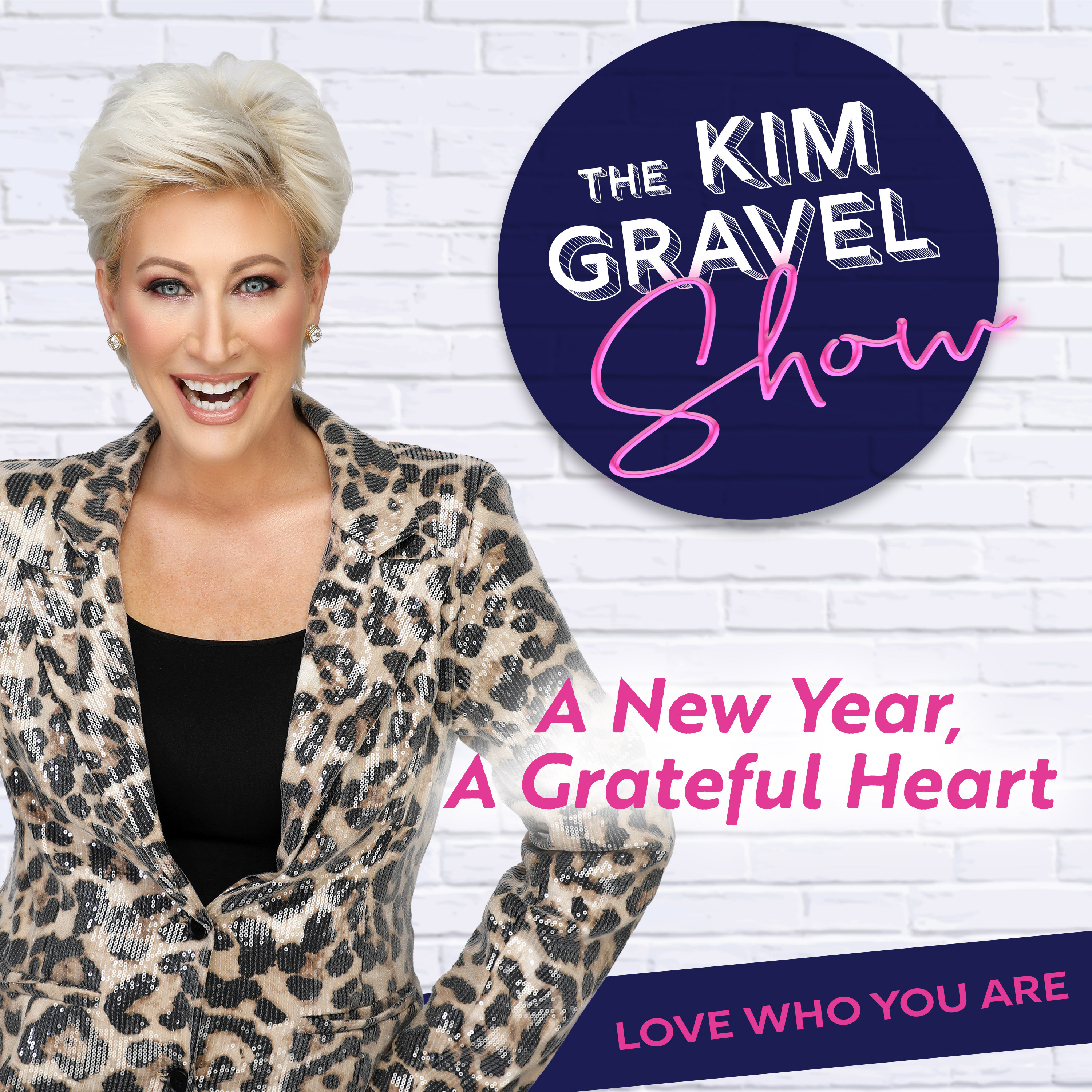Can You Really Be Happy at Work? with Bree Groff
Bree Groff tells us how to stop just surviving the 9-to-5 and start actually enjoying it—think more fun, more realness, and way less burnout—so you can show up to work as your full, fabulous self and finally feel good about it.
Let’s be real—work can feel like an endless loop of meetings, fakeness, and counting down to the weekend. This week, Bree Groff, author of Today Was Fun: A Book About Work, is here to help you flip the script and actually start enjoying your workday. We discuss why showing up authentically, building real connections, and creating a fun, human workplace can completely change how you feel about your job. Bree also shares smart tips to avoid burnout and find work-life balance, so you can show up without running on empty. If you’re ready to stop just surviving and start thriving at work, this episode is a must-listen.
Bree's book, Today Was Fun: A Book About Work is out now!
In the episode:
- How to have fun and enjoy yourself at any job
- Rethinking how we show up to work and why it matters
- The power of authenticity at work
- Humanizing yourself to create a more comfortable work environment
- Building meaningful connections and trust in the workplace
- Tips to avoid burnout and achieve work-life balance
Here is my favorite quote from this episode:
“So often we feel that our days are not even ours. We have sold them to some employer.” — Bree Groff
If you want your questions answered then leave a comment or call me and leave me a voicemail at 404-913-6460
There is BONUS CONTENT in our free newsletter so make sure to subscribe at https://www.kimgravelshow.com
Collecting Confidence, my best-selling book is now available in paperback with a brand new discussion guide!
Click this link to buy it now: https://www.barnesandnoble.com/w/collecting-confidence-kim-gravel/1141694399?ean=9781400238606
Join my Love Who You Are movement at https://lwya.com
Connect with Me:
New episodes of The Kim Gravel Show drop every Wednesday at 6pm EST.
Connect with Bree Groff:
Today Was Fun: A Book About Work
New episodes of The Kim Gravel Show drop every Wednesday at 6pm EST.
Support our show by supporting our Sponsors:
Scentbird
Love switching up your scent? Scentbird makes it easy to try designer and boutique fragrances each month—without the commitment of full-size bottles. It’s a subscription that gives you access to 900+ scents, so you can discover your favorites without the high price tag. Use code GRAVEL at https://scentbird.com for 55% off your first month and get your first fragrance for just $8!
*This transcript was auto-generated*
Kim Gravel:
Do you hate your job? Bree Groff is here today to flip everything you think you know about being happy at your work on its head. It's a game changer.
Bree Groff:
And I thought, what is the use in extending our lives if we're just wishing away Monday through Friday?
Kim Gravel:
I hate meetings.
Bree Groff:
What I'm trying to do is to bring some of that humanity back because it makes us feel more alive, and it also makes the work better. Your brain works, whether you're wearing a suit or stretchy pants.
Kim Gravel:
That is how every employee in the world feels about their job. Somebody's listening to this right now and is having a revelation. Hey, y'. All. Welcome to the Kim Gravel Show. This is your weekly dose of encouragement, hope, and a lot of laughter. I'm Kim, and I'm here with my trusty producer, Zac. Hey, Zac.
Zac Miller:
Hey, Kim.
Kim Gravel:
Today's about work and about having more fun at work. And, Zac, we work together a lot. Am I a fun person to work with?
Zac Miller:
Yes, Kim, you are very fun. Just kidding you. You are totally fun to work with. I think the fact that I can even joke about that tells me, you know, tells the audience a little bit.
Kim Gravel:
I don't know.
Zac Miller:
Do you think you're fun?
Kim Gravel:
This is what I want to know.
Zac Miller:
Are you fun at work, Kim? What do you think?
Kim Gravel:
No. No, I'm not. I'm not. I need help in that area. I'm serious. Like, believe it or not, people think, oh, my God, Kim is so much fun. I am, and I'm not. Okay? Like, I'm intense.
Kim Gravel:
So I would think the first word for me in the work environment would be intense.
Zac Miller:
That's a good. That's a pretty good word to use. But why? Okay, you're intense, but you also are. Like, you're empathetic. Like, you understand that. You're not.
Kim Gravel:
I care.
Zac Miller:
You care. I think that's the thing. Right?
Kim Gravel:
But people get on my nerves, and things happen, and so it happens. But I want to ask you a question, and I want you to be honest with me, Zac. And there's no judgment here, so there is no retribution or anything if this is the case. So I have heard through the grapevine that there's a group chat that is a venting group text about me and Amy or events about me and Amy as bosses. Zac, do you know of any. Do you know of any text strands?
Zac Miller:
Here's what I will say. I wish there was a text strand that I could be a part of, because it would be great, honestly. And I will tell you. I will tell you when, you know, every, like, once a month, Once every couple months, I'll call Emily, and Emily's lovely, and, you know, me and her will gossip a little bit. And it's great. And it's not mean.
Kim Gravel:
Fantastic.
Zac Miller:
It's just like, hey, what's going on in the world?
Kim Gravel:
You know, it's just fantastic. It's just fantastic. Well, can I just say something? Zac, our guest today, that that is how you build teams. That. That is camaraderie. That is what makes work fun. And I cannot wait to get to her today. It's going to be so good.
Kim Gravel:
And I'm going to get. By the end of the show, I'm going to get to the bottom of this if there's a text.
Zac Miller:
But wait, I feel like you as the boss, grilling your employees on whether or not they are doing, like, text behind your background. I don't know if hr, Toxic workplace. And actually, I would like to talk. Who's hr? Who can I talk to? That's hr. Is that Amy's hr?
Kim Gravel:
Call Amy.
Zac Miller:
I'm going to call. I'm calling Amy next. I'm going to be like, I want to file an HR complaint against Kim. You know what? I'm start the text chain. Just to prove you right.
Kim Gravel:
Just to prove.
Zac Miller:
Just to prove you right.
Kim Gravel:
Okay, Zac, we're about to bring in our guests, but first, I wanted to say to every single person who's watching, listening, thank you for being here. You know, podcasting is so personal, and the fact that I get to share, you know, anything that y' all would even begin to even, like, click and listen, I just. I just want to thank you so much, and I want to ask that you, if you feel like it, and I hope you do, you share this episode with a friend. Let everybody know what's going on over here at the Kim Gravel Show. Word of mouth is what helps us grow. And Zac and I keep making the show bigger and better every single week. And we just thank you for being here and listening. Let somebody know, because maybe somebody, even after today's episode, can learn a little something and be encouraged.
Kim Gravel:
Y', all, I've got something to share that I absolutely love, and I love it because I love variety. And I'm all about, like, easy, clean, fresh fragrance and the right perfume makes you feel, I don't know, confident, alive, like you can do anything. But the problem is I also, you know, love to use different scents. I love trying new things. And so depending on my mood or what I'm doing, so buying full size Bottles of perfume is way too expensive. Travis is like, I don't think so. So that's why I'm obsessed with my new sponsor, Scentbird. Scentbird is this fragrance subscription service on a mission.
Kim Gravel:
And its mission is to empower each and every person to express themselves through scent. And it's incredible getting to experience so many different scents each month without committing, like, full size bottles. I mean, I love change, I love being surprised, and I love discovering new fragrances that may become the next staples in my fragrance routine. I call it my fragrance wardrobe. I just tried lake and sky, and it smelled like this organic, fresh, clean scent. I also loved light blooms. It's going to be perfect for those every day where you just want that fresh, fragrant garden smell. Seriously, all these perfumes smell so good.
Kim Gravel:
And the best part is they're also affordable. You can try the first fragrance from scentbird for only $8. That's right, $8. And then your next month will only be $16.95. They have over 900 fragrances available. It's a genius idea. And all you have to do is scan the QR code or use the promo code gravel. That's gravl to get 55% off your first month at Scentbird.
Kim Gravel:
And then you get your first Fragrance for just $8 to try a high end boutique fragrance. I'm telling you. And the next month will only be 1695. So that's code G R A V E L for 55% off your first month at Scentbird. Okay, y', all, my guest today has figured out the trick to being happy at work. And let me just say, who wants more of that? Hands up. Me, me, me. Her goal is to help you design your work and your life in a way that will make you feel excited to get out of bed every morning and go to work.
Kim Gravel:
She spent decades as an advisor for companies like huge companies like Microsoft, Google, and even Target. And now her new book has just been released and it's called Listen, Today was Fun. A book about work. Seriously. And I love that because it could be seriously or seriously. Let's ask our guest what she meant by that. Please welcome. Your name is perfect to be sung.
Kim Gravel:
It's short, it's sweet. It's to the.
Bree Groff:
It's so good. Thank you for having me. That is amazing.
Kim Gravel:
Okay, Bree, let me just ask you, what is. How would you say seriously? Like, how do you say it?
Bree Groff:
Like, I say seriously, as in when I talk about fun at work, people raise an eyebrow. They're like, are you Talking about ping pong tables and happy hours. And my answer is no. I'm talking about, like, as you're doing the work with the people producing the things that create the value. That is the fun part. Seriously. Seriously.
Kim Gravel:
I got it. So it's not a. Seriously, you know, it's not a. It's not a. Like, you got to be kidding me. So this. Can I just. I'm going to start off with tick, because there's a little thing happened.
Kim Gravel:
I probably shouldn't be saying this, Bree, because, you know, all things people can. Okay, here we go, spilling a little tea. So within our little work family. I won't tell you which work family, because I have a lot of work families. There is a spill the tea venting chat going on.
Zac Miller:
Oh, no. Now I'm worried, Kim.
Kim Gravel:
No, Zac, I'm serious. Seriously, it is so, Bree, I'm living for this chat. This chat is basically a reality TV show in the making, right? Yeah. Is this the kind of fun you're talking about having? Because if I'm down, like, four flat tires, if it is, that's probably not appropriate. But is that the kind of, like, thing you're talking about? Building relationships with people? Building connections with people? What do you mean by having fun at work?
Bree Groff:
Yeah. So it's not the sum of it, but it is definitely a part of what I'm talking about. So that sort of, like, underground spill the tea chat is so fantastic for two reasons. One is we always feel better taking off our business mask. Right. Like, there's a way in which we feel like we have to present and use the jargon and the strategic imperatives and. Right. Like.
Bree Groff:
And it makes us feel more professional in a way that we think is palatable, but it also strips us of our humanity. So in a chat like that, you're like, it's fantastic. Through my business mask, like, let me tell you what it really is. So that's great. And then the second thing is the camaraderie. I am a. A firm believer that your work friends can and should be your friend friends, because if you are spending more time with them some weeks than the significant other, a kid or, you know, whoever it is, then I would hope you like them. And so sometimes, and there's actually tons of research on this too, a little bit of, you know, light, spirited gossip with friends is bonding.
Bree Groff:
Now, I don't want anyone to mean, be like Aubrey said, to just go gossip.
Kim Gravel:
I own and work with a lot of different companies. Right. So there is a group chat. I know about within my own Hardy Girl Inc. Company where I know that they are smack talking me and my business partner Amy hard. And honestly, A, I'm jealous, I'm not a part of it, but B, I think it's a good thing. Like I encourage that because that's the human part of who we are. And I love what you write.
Kim Gravel:
You say be a meets expectation employee and an exceeds expectation human. It's the human side of us that I love that you go about talk about in your book. Explain that.
Bree Groff:
Yeah, so we pretend like we're not humans at work and we 1000% are, right? Like we have this sort of machine like Persona that we often put on and not because we want to, but we sometimes feel like we need to in order to be accepted. It's things like not eating lunch during the day because we feel like it's not professional to eat eat. And during a meeting or you know, as we talk build putting on your business mask or trying to create this sort of Persona of being professional. But it's not good for humans and it's also not good for the company. So at a human level, like, who wants to feel like they have to like pull it all together all day long at the end of the day, you're like, oh, you can finally like unbutton this button and be myself. Like, it's not good for your mental health, your psychological safety at work. It's also bad for business.
Kim Gravel:
It's not good for business as an.
Bree Groff:
Organization or a leader. You want your people to be coming with their full palette of creativity and expression and ingenuity. And none of that happens when you're sitting with perfect posture all day. And so what I'm trying to do is to bring some of that humanity back is to like crack that, you know, candy coated exterior that we sometimes put on because it makes us feel more alive and it also makes the work better.
Kim Gravel:
You talk about building a cozy team and I think about all those movies in the 80s and I'm older than you, Bree, but you know, like what was that movie called with what's her name in it?
Zac Miller:
You're giving us a lot to go on, Kim.
Kim Gravel:
I know what's Working Girl? Working Girl with Working Girl is the name of it. And they talk about put on a mask. I mean that in the 80s and even the 90s, that was the thing to do, Bree, was just to button up, remember the little. Well, you probably don't because you're an older millennial. But you know, put on the Little belt. And you know that you had to, especially as a woman, be a professional. What's a cozy team? How do you. I mean, being cozy in team does not sound like they go together.
Bree Groff:
So, first of all, I get that. And I'm also a woman who has been in many boardrooms and felt to do all those things, right? Like to drop my voice a little so it sounds fuller to pick the seat at the end of the table, like to do all those things to sort of, like, fluff my feathers. I've felt all of that. And so there's a way in which I want to succeed in the world, but I also want to change it. And so a cozy team. When I am leading a team, I don't want anybody on my team to have to feel that way, that they have to fluff their feathers or perform. So when you think about what coziness feels like in the winter or the fall, you feel safe and comfortable despite the elements, right? It could be a blizzard outside, and you feel good and safe and comfortable. So I want my teams to feel that, too.
Bree Groff:
No matter what's happening out in whatever with a client or the market or the business, a team that is cozy is one that trusts each other, that feels comfortable, humans around each other, that is actually interested in each other's lives beyond work. It doesn't have to be super invasive, but, like, you should, I don't know, know if somebody is a sibling or like, some basic facts around each other and simply just move through each day, as I say, sort of bearing witness to each other's lives. It's nice to feel known, and it's nice to know other people. So we can always create that at the local level, even if at a company level or at a society level, it feels like, oh, we have to put on our masks to succeed.
Kim Gravel:
What do you do when you have a team member that is frigid, not cozy?
Bree Groff:
Well, so there's always going to be a spectrum of how people want to relate to their work. I've met, I've had many people on teams who are like, look, I want to come, I want to do my work, I want to get paid, and I want to go home. Sometimes people will relate that way. And I always secretly suspect that sometimes people relate that way because they've been burned in the past.
Kim Gravel:
- I agree.
Bree Groff:
So if I, like, I hold the belief that deep down, people do want to show up as themselves, as their unapologetic self, that they do want to be seen and known and. But I also don't want to force that on people. Right. I'm not saying, like, tell me about your first relationship in high school. You know, it's. This is a Getting to know people on a level that they're comfortable with. And then what I find is inevitably one when a person feels safe, then they do want to be part of the cozy team.
Kim Gravel:
But don't you think people want real connection, though? Especially like you said at work, when we're spending a lot of our time, I think, as humans, like, as you always talk about the human experience and showing up as a human, not a worker, Be.
Bree Groff:
Yes.
Kim Gravel:
You know, we want that connection. How do we do that? In a way that in our world where everything is so HR focused.
Bree Groff:
I know. Well, yeah. So first of all, I try and model, like, I try and model myself showing up just as myself, and probably I'm like, 25% too much TMI. I'm okay with that. You know, I will. It's fine.
Zac Miller:
Kim is 100% TMI.
Kim Gravel:
Oh, I'm 98%. So this is it, Bree. We're gonna add you to our little group chat. The spill, the tea with them and me. Yeah, we're going to add you to that group chat. No, I hear what you're saying, you know, you're 25% TMI and you're okay with that.
Bree Groff:
Yeah, I don't want to make people feel uncomfortable. But also, I want to model. Like, look, if I'm going to exercise in the morning and shower and come, like, I don't have time to do my hair, my team is going to deal with that and be fine. Even clients are fine with that. But I want to model that. Like, look, I just. I want to be healthy, and I'm just as smart if my hair is, like, perfectly done or not.
Kim Gravel:
Ain't it the truth?
Bree Groff:
Right? Like, I'm smart. I'm wearing a blazer or pajamas. I'm just the same. Like, I model eating during the.
Kim Gravel:
So what is your. What is your take on this? All this work from home, remote working? I'm curious in your background because you've been in the corporate world, which is. It's its own world. Yeah, I mean, it is. I will tell you, in all my years in business, the corporate world, I've never seen people fail up more than anywhere else. In, like, athletics, you can't do that. And, you know, honestly, in, you know, the arts, it's hard to do it. But in corporate America, you can fail the heck up so easy.
Kim Gravel:
How do you remain human in that Kind of environment.
Bree Groff:
My instinct is always. It sounds so stupid. It sounds like what you tell a kindergartner. It's like, be yourself and tell the truth, right? Those are the two places to start. And I. Yes, I do. Like, I show up as myself. So my teams have seen me cry over the years dozens of times, right? Because my daughter is having a meltdown.
Bree Groff:
Because, like, when I was losing my mother, you know, I had a hard day at the hospital. But, you know, like, I'm. This is me, 360 degrees breeze. So, like, sometimes I'm going to cry. And you know what? It doesn't make my teams think I'm unprofessional. It actually endears them to me. I think, like, we've got your back breath. Like, do you want to go take a break? What do you need to do? We've got this.
Kim Gravel:
It's authentic.
Bree Groff:
It's all. It's just. I'm just showing up as a human, right? And. And I'm also telling the truth, you know, Like, I'm not zippering up myself and. And trying to put on a brave face. Same is true. Like, if a project is going off the rails, I say, hey, I think this project is going off the rails. What should we do about it? And not with resentment, but it doesn't help to.
Bree Groff:
To sort of sugarcoat or, like, I agree, you know, or internal comms, ify it. Like, you just. You got to tell the truth. And then people relate to that and they want to be a part of helping you or the solution or whatever it is.
Kim Gravel:
I mean, I love what you just said about the whole project thing, because I don't know if this is a woman thing, but, like, there's so many times I look at projects that we even are doing, and I'm thinking, that ain't going to work. It's just not going to work. And so instead of just saying it, I find myself tiptoeing through the tulips sometimes.
Bree Groff:
And.
Kim Gravel:
I have learned. Now, I want your take on this, because I have learned that when I'm kind of just a straight shooter, the sting hurts. When I say, this ain't going to work, y'. All, it stings a little bit, but in the long run, that authenticity, that transparency pays off for us all as a team, We. What are your thoughts on that? Because you seem to be authentic. Like, look, this is who I am. You like it. You like it.
Kim Gravel:
You don't. You don't. I like what you're saying, because I think it's absolutely 100% true. Yeah, but what. What does the tiptoe effect do for us? I don't think it serves us.
Bree Groff:
Yeah, I agree.
Kim Gravel:
Because in the.
Bree Groff:
I'm with you.
Kim Gravel:
Okay. I feel it.
Bree Groff:
Because in the moment, sure, it's going to sting. Like, somebody came up with the idea. You've, like, done a few things. Like, it always is going to hurt. But what hurts more is one, when you have a leader that didn't say anything, and then you spent, what, weeks or months of your life trying to build this project, and then it fails. And then the leader, it's like, oh, somebody knew. I could have saved all that time. Builds trust and the psychological.
Bree Groff:
If a leader. If a leader can model. I'm just going to say what I think, then it creates more of an environment where that's okay and we don't have to sugarcoat it. And if you built a cozy team first, it's so much easier because then I can say to a team, like, my team already would know that I think that they are smart and capable. And me saying this project is not going to work is not a reflection on my opinion of them. It's a reflection on whatever context this project is in and whatever we're doing with it. And so if you have the care there, first the honesty becomes so much easier. And then they respect you for it for, like, just, you know, calling it as it is.
Bree Groff:
And. And honestly, it's infectious, too. Like, people are drawn to people who can speak their mind.
Kim Gravel:
Isn't that the truth? I'd rather know what you're thinking and feeling and how you feel about it than it. To me, the other one. Not only is it disingenuous when you're. When you're not saying what you mean to say and how. But it's a little bit manipulative. I mean, and you can't trust that because like you said, trust is at the crux of any and every relationship, including business. All right, so so much of business can feel like yada, yada, yada, performing, you know, like being busy and my to do list and professional. I've got 5,000 meetings, which I hate.
Kim Gravel:
I hate, hate meetings. Yeah, you're not alone. But isn't performing. It's not real. How many results do you get from performing at work instead of, like, accomplishing.
Bree Groff:
Right. It comes from a place of fear. Like, we want to be seen as professional. We want our work to fit in the people, you know, they're making, the presentations that look like everybody else's presentations. I mean, it comes it comes from, like a really deep human need to be accepted at its core, and especially by a organization that's paying your bills and supporting your family, like, that really runs deep. So I get the instinct to perform in that way, but I found consistently it's the people who really end up getting ahead or the. Are the ones that are just a bit braver, like the ones that are saying what they think, that are daring to push the boundaries, that are daring to be a little bit more creative. You know, especially with AI there.
Bree Groff:
AI can do the normal stuff, right? Like AI.
Kim Gravel:
Oh, we haven't even gotten into that.
Bree Groff:
Yeah, I mean, that's a whole other thing. But the people who dare to be a little bit braver, like, those are the people who are being. Being given the bigger assignments and are succeeding. So it. It actually it's. It feels counterintuitive because it feels less safe. But in the long run, your safety in your career is based on you doing good work, not just pretending or performing good work.
Kim Gravel:
That is. We gotta sit on that for a second because we are in a culture and I see it with my kids who are teenagers, that is how it looks. It's performative as. As opposed to productive. Because honestly, I find myself, I don't have time to post on the productivity that our company and that I'm doing because I just don't have the time. But the people who are performing, who are. Yeah, yeah, yeah. When you get under the hood of a business, you're like, oh, well, they're not.
Kim Gravel:
That's not that real. So I love how you are talking about this authenticity. I don't know if I believe in the fake it till you make it. Right. I believe in faith it till you make it. But faking it is. Is faking it. I was just having this conversation with.
Kim Gravel:
With my business partner driving over here to do this podcast. I say all that to say, how should you show up to work? Like, how should you present yourself? You have some rules in the book about that. But, like, how should you come with your full self? How do you do that?
Bree Groff:
Sure. So first of all, you don't have to do it all at once or all on one day.
Kim Gravel:
You don't have to make it like.
Bree Groff:
Your debutante ball where you come one day and you're like, here I am, the real me.
Kim Gravel:
Unreal. Yeah. Okay.
Bree Groff:
Which, I don't know, might be amazing if you wanted to. Yeah, you can do it step by step. So all of chapter two is about the title of the chapter is your brain works. Whether you're wearing a suit or stretchy pants, look like, if you work in finance and everyone's wearing some kind of suit or button down and you don't want to get fired, like, fine, put on, like, a sock with a fun print. You know, like, you can, day by day, step out a little bit more yourself. And frankly, like, when I see somebody, especially, like, in talking about dress, who's just. You can tell when they're radiating. I feel good in my skin and in my clothes.
Bree Groff:
And then you can tell when someone's, like, adjusting their collar. That's, like, buttoned up a little too torture, right? Like, and jargon is the same way. There's some, like, super interesting research that we. We think jargon improves people's perceptions of us, but in fact, it can backfire. And it's often more junior employees that overuse jargon. I mean, you can almost, like, see it. If you have a junior employee that's like, I think we need to align on our KPIs so that we can strategically optimize for our business performance. In Q4, you're just like, what are you saying? And then the good leaders will be like, we're doubling down on this.
Bree Groff:
Put a million dollars in it. Right. Like, that's a bold, clear move versus the performative jargon. So get rid of the jargon. Just give it a shot saying what you want to say. And, you know, again, you don't have to do it all at once. But I don't know, in one meeting this week, you can just give it a go. Like, what's that thing? We often feel like it's this thing I want to say.
Bree Groff:
It's sort of bubbling up. Should I say it? Should I not say it?
Kim Gravel:
Say it for a test drive.
Bree Groff:
Say it out loud, right? And, like, see what the reaction is. And when I've done this, people come up to me after the meetings and say, thank God you said that. Thank you for saying that.
Kim Gravel:
Yeah. Right.
Bree Groff:
But we just. You have to give it a small go.
Kim Gravel:
When I show up to work, you know, because I have to put on the dog is what we call it, you know, to doll up. So I, you know, what does it mean to dress for joy? I mean, dress. Dress your personality. Dress. Talk to me about, like, that. Because a lot of people think, oh, God, it's like the sheep mentality, and everybody needs to. But I love the individuality of people.
Bree Groff:
Yeah. There's a quote in the book from the chief New York Times fashion critic that says, I love when women. I'm paraphrasing here. Show up in clothes that telegraph to the world who they are, because that is the ultimate grownup way to dress. And I just loved that, because it's not. I'm going to wear this so that someone else's opinion of me is gonna be this, which we all think about. Right. It's human nature.
Bree Groff:
And it's like, I get it. Like, I'm not gonna show up to somebody's wedding and sweatpants. Like, you're gonna be sort of, like, situation aware. But when I can show up, like, right now, I'm wearing a tank top because I love having my arms free. Like, it makes.
Kim Gravel:
I love your nail color, too. I love your nail color. Like, I mean, I'm serious. Like, I see. I can see who you are by your precious hair and your nail color. To me, it just. It's. It's.
Kim Gravel:
It's a look. It's a distinction.
Bree Groff:
Yeah. And it makes me feel more like myself. And now I'm here speaking with my voice as opposed to, like, oh, what do I. What do I think you want to hear on this? Like, what does Kim want me to say? You know, I feel like I. And. But also, like, you. You, like, beam this out of your pores of, like, we want it. You know, like, it's comfortable to be yourself around you.
Bree Groff:
And so I think it's important. It makes us feel better about ourselves and our days. It makes us feel more seen because you're being seen for who you are. And frankly, it is magnetic. Like, in any room, especially in board rooms, I look around to say, who's the most unapologetic version of themselves. Like, I'm drawn to, like, the person.
Kim Gravel:
Who'S drawn to them.
Bree Groff:
Hold it up. Right. Or is, like, doodling a frog or is saying what they want to say, like, that's.
Kim Gravel:
I love a good frog doodle.
Bree Groff:
I'm like, I'm gonna be them. I'm gonna be that person.
Kim Gravel:
Well, and it also, when you show up authentic, it gives other people permission to do the same.
Bree Groff:
Yes. A thousand percent. And people are grateful.
Kim Gravel:
This.
Bree Groff:
This is the. Like, my hypothesis about what people actually want. What they just don't say. They actually want to have work friends. They actually want to show up as themselves. They actually want to say what they're thinking and have that be received. And it could be right, it could be wrong, but to have it be received. So if we believe that, then we can create the conditions for It.
Kim Gravel:
I love your thing about being brave. It starts with taking that first step to be your authentic self. It's so funny to me how your book is talking about the work environment, but don't you think this is universal to everything in life?
Bree Groff:
Yes, for sure. I mean, I, I write and talk a lot about work because that's my experience as a consultant and. But, but absolutely. Like, I, in all aspects of my life, want to be the most vibrant version of myself and have that be accepted. You know, there's an exercise in the book called the user manual, which is like my sort of like cheeky term for it, but it's essentially a one page guide where you write down things like how to help when I'm stressed or stuck, what makes me happy on a team, what makes work sustainable for me. All these things that you write down and then share with your colleagues such that when they see you're stressed, like, oh, now they know, should they go up and talk to you or should they give you some space? So that's a work thing, but frankly, it's like not a bad thing to use with a partner or a friend or like someone you're dating. Like, it's all just human relationships. I, you know, I, My experience is thinking of human relationships in the context of work.
Bree Groff:
But yeah, it's just a, It's a human thing as well.
Kim Gravel:
But how did you figure all this out? Like, what, what story did you live a life that was not authentic in the workspace? Like, what made you want to write this book? Because you've got. It's personal experience, for sure. I can tell this is not something you learned. You learned it, you know what I mean?
Bree Groff:
A thousand percent. So, like, I had all this consulting experience, which is like, good. Lots of people have consulting experience. The turning point for me. So I mentioned my mom. My mom was diagnosed with a terminal cancer in 2022.
Kim Gravel:
What kind of cancer? Do you mind me asking?
Bree Groff:
No, it was a stage four lung cancer.
Kim Gravel:
Oh, God.
Bree Groff:
It was. She was, she was a smoker. She quit cold turkey when she had me, like now, 40 years ago. But that doesn't matter, you know, if you have smoking, history of smoking or it could have been random, you know, nobody knows, right? Like, nobody knows. Yeah, it just came and it was. And when they found it, it was already metastasized, so. But, you know, it shakes your world. Like, my father already had Alzheimer's.
Bree Groff:
I'm an only child. So I'm like, all right, Bree, buckle up. You are going to be the child Your parents need right now.
Kim Gravel:
Oh, God, Bree. It was, oh, my Lord, that's your next book. I'm going to be the child my parents need. So it was a conscious decision you made?
Bree Groff:
Yes, absolutely. Like, when I was like, okay, you know, because I've been in strategy for so long, I'm like, bri, what's your strategy? I was like, here's the strategy. You are going to leave all the. You're going to leave all the love on the table. You're going to leave it all out on the field, right? Like, leave, not leave. No love ungiven. And so I did. I.
Bree Groff:
When I heard this news, like, within a few hours, I messaged my work, and I was like, I'm out. Here's my projects. Here's who I think can take them over. I'm out for the foreseeable future. Like, didn't even ask permission. I wasn't going to take it out for an answer. And then I got on the first flight to Chicago, and my mom, we were trying to figure out what to do, and she's like, you know what? So I have a husband and a daughter. She's like, I want to be in New York with you all.
Bree Groff:
I want to get cancer treatment there. So I moved my parents. We drove their two dogs and two cats from Chicago to New York in one day, Got them all set up here. And then I spent those months taking care of my mom until her passing. And then my dad is still. Still around and hanging in there.
Kim Gravel:
How long was that process, Bree?
Bree Groff:
About nine months. So she was diagnosed in, like, end of January, 2022, and then she passed end of October. Yeah. I'd have to check my math, but it wasn't very long. But when you have a situation like that, it felt so acutely that every day matters and. Right. And that's sort of like a lesson that you would hear. And people, it's like, oh, yeah, sure, every day matters.
Bree Groff:
You know, it's like one of those things that you nod along to until it smacks you in the face like an asteroid coming into your life. And to contrast that with, you know, I would have so many friends from work check in, but then I'd be like, oh, how are you doing? And they'd say things like, oh, just getting through the week. Just, why can't it be Friday? I need this week to be over. And I thought, what is the use in extending our lives if we're just wishing away Monday through Friday?
Kim Gravel:
Bre, you are talking to someone right now. I'M telling you, girl, because it doesn't have to take a stage four lung cancer diagnosis to start living.
Bree Groff:
It shouldn't. And I think the tragedy is we let that hit us too late.
Kim Gravel:
And.
Bree Groff:
While holding still, that it's never too late. Right? It's never too. If you are alive, it is a happy day, and you get to live this day. But still, I want. I so desperately want other people to feel that sense of urgency that I felt. And it just so happened that I had some expertise around the one thing that takes so many good days from us, which is work. When we feel like, oh, this day isn't even mine. I've sold it to some employer.
Bree Groff:
But it's not.
Kim Gravel:
Oh, Lord. Girl, shut up. You got to say that again. Shut it down. Oh, my gosh, Bree, say that. That is a big honking statement. You gotta stop and say that again.
Bree Groff:
Okay? That our date.
Zac Miller:
She's like you, Kim. She forgot.
Kim Gravel:
Oh, my God. It was so profound.
Bree Groff:
Hey, I think what I said was. Yeah, it feels like our days are not even ours. I've sold this day to some employer.
Kim Gravel:
Shut up. Shut it up. Shut up. That is how every employee in the world feels about their job. Most every stinking, silly, crazy, nut bag employee, including me. That's how you feel. Somebody's listening to this right now and is having a revelation, and you've sold it. Girl, you gonna have to let me process this.
Kim Gravel:
Say it one more time for the people in the cheap seats. You're gonna have to say it because this is deep. People need to really listen.
Bree Groff:
So often we feel that our days are not even ours. We have sold them to some employer.
Kim Gravel:
But is that true? Is that true? Or is that just the way we feel? No.
Bree Groff:
These are our precious, finite days on this planet. Dance again.
Kim Gravel:
Let's go. Let's go.
Bree Groff:
They are always ours.
Kim Gravel:
Yes. I got cold chills from my rooter to my tutor.
Bree Groff:
Girl, this is yes. And what we need to do is claim those. To claim our. Our joy, our presence, our fun, our friendships, our moments on this beautiful planet. We need to claim those as important and ours. Ours to enjoy, even at work.
Kim Gravel:
Okay, first of all, we could just end the podcast now, say thank you and get the book and good night, because that is the most profound thing I've heard you say or anybody say when it comes to work. Because we've got to change the way we are feeling about how we're showing up to work and how we're. Because we got to eat, y'. All. We got to get Our chick fil A and our chicken nuggets. We got to eat. Okay, I know we should be eating healthier, but I'm just saying, like, life costs.
Bree Groff:
Yes.
Kim Gravel:
So how do you balance that though? Because, see, you just said, bye, Felicia. You were out. You checked out. You obviously had the financial luxury to do that. You had the.
Bree Groff:
There was an fmla, there was part time leave. There was, but.
Kim Gravel:
Yes, but you took full advantage of the things that had been set up. But that was a trajectory, a changing point. You don't really have to have that kind of diagnosis to really change your work life balance. How do you have a work life balance? And you gotta talk to me about the do nothing days. Cause I'm down for some do nothing days. Yes, I'll take a few of those.
Bree Groff:
That's right. Well, so you don't. The beautiful thing is you don't have to have the diagnosis or burnout correct in order to start loving your days. We're so used to this story and it's like, it's a good story. It's very well worn, right? You have that high flying executive who suddenly has a heart attack. And then, you know, sort of like every Christmas movie, right? You know, like, you've got the biggest lawyer. And then they're like, oh, I'm not valuing my life. But you can just, you don't have to wait for the burnout or the diagnosis.
Bree Groff:
You can just start valuing your days today. Okay, so the do nothing day. So you can do this at work or in life? Mostly in the book I write about how to do it at work, and.
Kim Gravel:
It'S, let's do both. Let's do both. Go ahead, tell us. Let's do both.
Bree Groff:
So at work, the number of leaders I worked with or employees who are like, I don't even have time to think, right? I'm going from email meeting to email. Like I can't have two original thoughts myself. Except if I'm in the shower, right? You know, like the shower is the time we get all our best ideas. Because what, it's like the one time we're not actually tough to think. Yes, exactly.
Kim Gravel:
Yeah.
Bree Groff:
So a do nothing day is a day at work. It's a working day when you or your team block out time. I do it for a whole day. But if you're like, bre, that's a bridge too far.
Kim Gravel:
No, no, no. Block out the whole day. It's not a bridge too far. It's. It's gonna be a bridge too far if you don't do this. No, we're blocking out the whole day. Bree, we're doing it. Okay.
Bree Groff:
I love it.
Kim Gravel:
Okay.
Bree Groff:
Black out the whole day. So. And you can think of it this way, it's a do nothing day in that you're not gonna email.
Kim Gravel:
It's not an off day. It's not an off day, not an off day.
Bree Groff:
This is a working day. This is not paid time off or anything. But you are not going to promise emails, reports, deliverables, writing anything. You're not going to produce anything. But you are going to think everything. You are going to spend the time dreaming, walking, letting your mind wander. You could take 10 showers for all I care. If you do this in a team setting.
Bree Groff:
I do this every single project. Normally we go to the park, put out some blankets and we just talk about the project. And so it is working day. Like we're talking about the client, we're talking about their customers. Like, oh, what would be cool? Cool what, what could we do there? And we let our brains wander down rabbit holes. If some. If conversation is not interesting, we stop having it. If a conversation isn't, then we go in.
Bree Groff:
Well, what if, what if, what if, what if? And this these days, I tell you, they never fail to deliver that. Like there's always an idea on that day that ends up being the most valuable part of our project. Because our brains are not wired to be creative and expansive and brilliant in 30 minute blocks. We just, that's just not how our brains operate.
Kim Gravel:
Are you for hire? How can we hire you in our lives?
Bree Groff:
Yes.
Kim Gravel:
There are days, honestly that I love just which I never have them, but I'm gonna start doing it. I'm doing some do nothing days.
Bree Groff:
Love it, Kim.
Kim Gravel:
I just. Cause my kids are gone, thank God, they're getting ready to go back to school. And my husband, praise God, he's gone or something. And I just sit at my desk and I have nothing to do. And I'm excited about it. Yes, it's the best honking day. I'm not thinking about what I'm cooking, what I'm cleaning, who I'm talking to a meeting. I can just, even if it's just clean out my inbox, I don't have to be on.
Bree Groff:
Yes. Because that's what our brains need. Like you could think of it like it's impossible to exhale and inhale at the same time. Right. You just can't do it. And so all day what we're doing is like inhaling emails and messages or hyperventilating like, you know, emergency.
Kim Gravel:
Emergency.
Bree Groff:
Yeah, right. Like you have no time to like, let your brain produce and imagine. Right. Like all of that stuff. Like whenever we have a do nothing day and an amazing idea comes out, it's like, where was that idea? Well, that idea was just stuffed under 20 emails and like reports and client meetings that we had. We just had to take those away and then that.
Kim Gravel:
The idea, it came to the surface.
Bree Groff:
Exactly.
Kim Gravel:
I think we should do this in our personal lives too, Bree.
Bree Groff:
Yes, A thousand percent. Because it's.
Kim Gravel:
Because how your family, with your kids. Yes.
Bree Groff:
Right. It's so easy to be like, oh, I didn't do the laundry yet, let me just do that. And like, right. It's an, it's a never ending list of things that you could be doing. But to just, it's like, when's the last time you thought like. Or you talked with your family about, like, what's the kind of life we want to live? Or, you know, I talk with my husband sometimes, like when we're empty nesters, what do we want to do? Like, could we dream a little bit? Like, where do we want to live? Where. What do we want to be? What's important, important to us. It's like those kinds of conversations.
Bree Groff:
I feel like, oh, he and I didn't have those conversations for like a decade. Like, my daughter was young and we're like working, but that kind of. Or even just frankly with a family. Something unplanned, without devices. Like, when's the last time you let yourself be bored?
Kim Gravel:
And I love it. I want to be bored free. I want to be bored. And can I say this? It. I'm going to go back to your mother because when it came to it, and that end was closer than you anticipated because I'm sure her life was, was. It was gone far too soon.
Bree Groff:
Yes.
Kim Gravel:
You don't sit and talk about the emails now and all the work accomplishments. You talk about the. Do you talk about the do nothing days. That's what you talk about.
Bree Groff:
You know what those days? It's like sometimes people are like, well, what were those days? Was it like horrible and gut wrenching and you know what? It was in so many ways. But there were so many days where like, we love to make smoothies together or we'd walk to the park or, you know, I would be like, let's go to this restaurant that's wildly expensive. But like, who cares? Like, right?
Kim Gravel:
Who cares?
Bree Groff:
If the money doesn't have to last you a long time, it better give you a good Time in the meantime. So we are living it up.
Kim Gravel:
Okay?
Zac Miller:
That's. That's Kim's new motto.
Kim Gravel:
That's another one.
Zac Miller:
Let's give Kim a new motto.
Kim Gravel:
Okay, Bree, we got to slow it down, because I can talk to you forever. I can tell you that right now, because that is. Just say that again. Just for the cheap seat. Say it again.
Bree Groff:
If the money doesn't have to last you a long time, it better give you a good time in the meantime.
Kim Gravel:
Okay, Travis, I hope you're listening. That's my cheap husband. Okay, we've got to do this. I could talk to you forever. I do this for every single guest. We do a rapid fire. Rapid fire questions. If you could be anyone's twin, who would you choose?
Bree Groff:
First person. Mariska Hargitay.
Zac Miller:
Whoa.
Kim Gravel:
Dang.
Bree Groff:
I just think she's so cool.
Kim Gravel:
Have you seen that new documentary?
Bree Groff:
No.
Zac Miller:
She just directed a documentary.
Kim Gravel:
It's about her mother. You know, her mother was. She's fantastic. You've got to go watch that.
Bree Groff:
I need to.
Kim Gravel:
She's bad to the bone, isn't she?
Bree Groff:
And I just feel like she's fantastic. Yeah. First thing, it was like, oh, my God.
Kim Gravel:
Can I just say, for rapid fire, you are the team lead, because you are killing it. Okay. Anyway, what TV or movie character actually represents your life?
Bree Groff:
I'm not stumbling as I'm holding back. I'm like, oh, my God.
Kim Gravel:
What? That. I'll tell you mine. Mine is Legally Blonde. Like, Harvard. Like, it's hard. I mean, that's so me. Like, I'm like, oh, crap. We can.
Kim Gravel:
I told my husband the other day, I was like, we can build this building. He was like, what are you talking about? I'm like, yeah, we're just gonna build this building. We're gonna design it. We don't even need an architector we're just gonna do it ourselves.
Zac Miller:
Kim, you're a year away from your own HGTV show. It feels like it's just every episode. You're like, oh, yeah, we're doing this. We're renovating that.
Kim Gravel:
Harvard. Like, it's hard. So, I mean, I got mine. Now what's yours?
Bree Groff:
Oh, my God. You know, Can I tell you a secret? I've only seen, like, 12 movies in my life. What? I know.
Kim Gravel:
It could be a TV show too. It could be a TV show.
Bree Groff:
Okay.
Kim Gravel:
Or a book. Or a book.
Zac Miller:
Now I want to know what the 12 movies are.
Kim Gravel:
Yeah, right. Can I tell you your movie? To me, you remind me.
Bree Groff:
Struggling.
Kim Gravel:
Yeah. No, you remind me, like, of A Jane Austen. Like Sense and Sensibility, Pride and Prejudice. You're that. You're that woman that's, like, out there doing her thing. You know what I'm saying? That shouldn't be just. I'm like, Jane Austen was so ahead of her time. She was so fantastic.
Kim Gravel:
Like, you're pioneering this new work thing that's just really hot. I'm digging it.
Bree Groff:
Okay. I love that. Thank you for saving me from not knowing what movie character I love gifting.
Kim Gravel:
It's my gift. My gift to you.
Bree Groff:
Amazing. Okay, Ready for another?
Kim Gravel:
Okay. What's your go to Productivity music song?
Bree Groff:
You know, this is going to be, like, a little too on the nose, but I don't care because I love it. It's the Nappy roots. Good Day.
Zac Miller:
That's a good song.
Bree Groff:
That's fantastic. I would play it right now if.
Zac Miller:
They wouldn't sue us, but.
Kim Gravel:
Yeah, right, right.
Bree Groff:
Just like at home. You should play it. But whenever I leave my apartment in the morning, wherever I'm walking to, I put that song on first thing every day. But also, like, it's also good for productivity, too, because it's like, I'm going to have a good day. I won't even try to sing it.
Kim Gravel:
Well, listen. But I'm good now. I'm going to put on my playlist in the morning.
Bree Groff:
Yeah. It just makes me feel really good. Okay. So I will do some, like, lo fi if I need to get in the zone and do some writing, some, like, jazzy sort of background music. But to get me going, I need the. I need the good day.
Kim Gravel:
Okay. Y' all heard it here first. Okay. If you had to start a totally new career tomorrow, what would it be?
Bree Groff:
First thing that came to mind. Coffee shop owner. Everyone's like, that's a terrible idea. Do you know the market?
Kim Gravel:
No. It's a fantastic. It doesn't matter. It's so zen, isn't it?
Bree Groff:
Like, I just want to be like, I made this for you. Here you go. And then they smile. And, you know, I would be way into the latte, art. All of it.
Kim Gravel:
Yeah. And it's so, like, when you walk into a coffee shop, you just feel. So. I don't drink coffee at all. So I go in, I buy the coffee, I drink two sips. I mean, it's such a waste of $16. But I'm just saying, like, there's a vibe there. It's a vibe.
Kim Gravel:
Yeah.
Bree Groff:
It's just. It's chill and fun and, like, people are generally like. And even better if people are Actually meeting there to chat and have conversations like the good old days, you know?
Kim Gravel:
Yeah. Instead of just staring at a screen. Okay, what's the most embarrassing thing you've ever done at work in a professional setting?
Bree Groff:
I know immediately. Okay, set the scene. This was.
Kim Gravel:
Set it, set it, set it. Bree.
Bree Groff:
This was like March 2020, right. Pandemic had just hit. We're all getting used to working from home. I had a new client. Client was wonderful. But their procurement department, which you have to go through to get all of the paperwork signed, we're being very difficult. And so it was a tense conversation because I'm trying to stand up for our firm and our team and get paid on good, appropriate terms. So it was this very tense conversation.
Bree Groff:
My daughter was home at the time because all the kids are at home during COVID So I stand up to move into the other room. So I'm carrying my laptop, but I'm carrying it at waist level because that's just how I stood up. Now, when I got dressed this morning, guess how many buttons I buttoned on my shirt? 1. And so I'm looking down at the screen, seeing my belly button face, this procurement woman. I'm barely clothed because, like, I think I was just like, it's fine.
Kim Gravel:
It's a zoom.
Bree Groff:
I was mortified. I was like, you're stripping.
Kim Gravel:
You're stripping. How did she respond? Like, how did she take it?
Bree Groff:
Oh, she didn't say anything. I like, she, like, that's the right move. Look of horror on her face. I truly could. And she's like, keeping it together because.
Kim Gravel:
What do you say you just break it down and be like, girl, I can relate.
Bree Groff:
You know, if this had been like, oh, a fun time with the team, I would have laughed it off. But after, I was like, no, I'm going to go, you know? Yeah. I was like, no, to self rebutton all the buttons on your shirt from now.
Kim Gravel:
Well, I think that we're kind of tied with that because this is a true story. I was in a meeting, a very intense meeting, meeting, negotiating. And there's something about, you know, sometimes when you think, you know, you can hear something but no one else can. You know, you. I don't know if you ever had these, like, out of body experiences. Like. Like when you're on an airplane and you've got headphones, right. And you think nobody else can hear what comes out of your body.
Kim Gravel:
So. Right. So I'm sitting at this meeting and I'm just. This is true story. I'm sitting there and everybody's just, wa, wa, wa. And I get. I'm checked out. I'm like, this is a waste of my time and all this.
Kim Gravel:
And so I'm just sitting, and I have to pass gas. So I stand up to walk out to go to the bathroom. And as I'm walking out the door, you hear. You know, what is it you hear? But I thought, well, I'm out the door. I'm almost out the door, so no one can hear it. So my friend says, not only could we hear it, you left a waft of odor in that place. When I walk back in, this guy from this consulting group, I'll never forget who he is. I won't name the consulting group.
Kim Gravel:
He goes, is everything okay? That is so good. So you have flashed people. I've passed gas. I think we're good, girl. I think we are our authentic selves, Tim.
Zac Miller:
I think your kids would call that crop dusting, for the record.
Kim Gravel:
Crop dusting. That's what. This is exactly what they call it.
Bree Groff:
You know, this is us at our most human. We are exactly.
Kim Gravel:
I'm doing what your book is telling me to do. Okay. Do you have a hidden talent? If so, what is it?
Bree Groff:
Yes. In fact, I can peel a banana with my toes.
Zac Miller:
Do you have a banana right now? Do you have a banana?
Kim Gravel:
If you do that on air, I'm out.
Bree Groff:
You want to see it?
Kim Gravel:
I do. Bree has already flashed a very important person in a company. I think doing a banana toe peel is good.
Zac Miller:
Are all of your buttons buttoned before you move the camera?
Kim Gravel:
She's doing it. Let her do it.
Zac Miller:
I can't focus.
Kim Gravel:
This is a really true hidden talent.
Zac Miller:
Okay, the camera's down.
Bree Groff:
I'm on the floor. Okay, so here we go. Shannon, better turn this around.
Kim Gravel:
This is fantastic. Oh, my gosh. Bree. And then that's it. I'm out. I'm out. I am out. That's.
Zac Miller:
That's our show.
Kim Gravel:
That's it.
Zac Miller:
We're just gonna cue the music. That's it.
Kim Gravel:
No, I'm not done. Bree. I got more for Bree.
Zac Miller:
I'm just kidding.
Kim Gravel:
You sit right there, Bree, sit right there. I'm obsessed with you. You are my new favorite person. What is your favorite junk food? And if you say kale, I'm gonna just lose it.
Bree Groff:
Yeah, I know. It's definitely Flaming Hot Cheetos.
Kim Gravel:
Yeah, they are good.
Bree Groff:
Yeah.
Kim Gravel:
Tell me why. Because it's a torturous pleasure.
Bree Groff:
I love spicy food. I have loved flaming hot Cheetos since I was like in middle school, and, like, if I was having, like, a hard time, my mom would come home from the grocery store with flaming hot cheetos to cheer me up. And so still I try not to have them too much. But when I see them, like in an airport, I'm like, yes, please get me some flaming hot cheetos in my mouth.
Kim Gravel:
Now that's salty. What's your sweet?
Bree Groff:
I am more of a salty person. What would I love for sweet? You know, I love a caramel anything. I'm not so much a chocolatey person, but, like, I can always do a flan. I can always do, like, a caramel coffee ice cream. That's like, that's my vibe.
Kim Gravel:
Who's your celebrity crush? Ooh.
Bree Groff:
Yeah. This is hard again because I have watched the 12 movies.
Kim Gravel:
So bad with.
Bree Groff:
Okay, I think about it for a second.
Kim Gravel:
Take your time. It's a serious question.
Bree Groff:
Yeah. It deserves a serious response.
Kim Gravel:
It does.
Bree Groff:
Who is yours in the walleye thing?
Kim Gravel:
Mine is Timothy Charlemagne right now, but I'm kind of in my cougar phase.
Bree Groff:
Oh, yeah, that's a good one.
Kim Gravel:
It's a good one. I love his jawline. It's the jawline for me. However, his butt is really, really skinny and smaller than mine. And my mom's number one rule is never date a man who's been butt is smaller than yours. And I would agree with that.
Bree Groff:
Yeah. I've dated men who are just like, very narrow in the hips. And I just feel like, let's not compare.
Kim Gravel:
I don't trust that.
Bree Groff:
Okay, this. Okay, so one this. Well, Jeremy Allen. Who's the guy in the bear?
Zac Miller:
Jeremy Allen White. Yeah, yeah, yeah. He's hot.
Zac Miller:
He's good looking.
Kim Gravel:
No brainer.
Bree Groff:
So good. But also, here's what I would say when I was a teenager and people would kind of make fun of me for it, but Elijah Wood from the Hobbit, because the big blue eyes, it's the same thing. That's the why.
Kim Gravel:
I'm not judging it. I'm not judging it. I'm not. Yeah.
Bree Groff:
Don't judge.
Kim Gravel:
Don't judge me. I'm not. You are being your authentic self, and I am here for it.
Bree Groff:
But the Timothy shall may also like.
Kim Gravel:
A big, big blue eyes. Yeah. Oof.
Bree Groff:
That's real good.
Kim Gravel:
Dark hair. Dark hair. You've got a type of.
Bree Groff:
Yeah, yeah, yeah. For some reason, I've always liked him. Real tall and skinny, too, which is not exactly Elijah Wood.
Kim Gravel:
Oh, did you want the Hobbit or did you want Elijah? Which One is it?
Bree Groff:
No, I guess the character.
Kim Gravel:
Okay.
Bree Groff:
I do love some main character energy.
Kim Gravel:
That's. Yeah, I can feel that from you for sure. And you give it. And y', all, you got to go get Bree's new book. It's called Today was Fun. A book about work and let's do it together, Bree. Seriously.
Bree Groff:
Seriously.
Kim Gravel:
It's available everywhere, books are sold, and you've got to go follow Bree on her LinkedIn at Bree Groff. And you've got to. She's on substack and it's called what work should be. I'm sure you're on all social media platforms. Bree, thanks so much for coming on the show. You gotta come back, and next time, we want you to be able to pick grapes off and eat that with your feet. That's your new talent.
Bree Groff:
I got it. Practice. I'm going to be ready. This is awesome. Thank you so much.
Kim Gravel:
I love you, Bree. I love you. You are just simply. You are joy. You really are.
Bree Groff:
You made my day. I love being here. Thank you, Kim. Love you.
Kim Gravel:
Love you, too, baby. Thank you so much for coming on the show, Bree. Love you, girl. And thank you to my sponsor, Scentbird. Use my code gravel to get 55% off of your first month at Scentbird. You can get your first Fragrance for just $8, and the next month it will only be $16.95. I love the Scentbird and so will you. Make sure you check it out.
Kim:
Zac Miller is the Executive Producer of the Kim Gravel Show. His production company is Uncommon Audio. Our Producer is Kathleen Grant, the Brunette Exec. Production help from Emily Bredin and Sara Noto. Our cover art is designed by Sanaz Huber at Memarian Creative. Our show is edited by Mike Kligerman. Our guest intros are performed by Roxy Reese. Our guest booking is done by Central Talent Booking. Our ads are furnished by True Native Media. And y'all, I want to give a big huge thank you to the entire team at QVC+ and a special thank you to our audience for making this community so strong. If you are still listening then you must have liked a few episodes along the way. So tell somebody about it. Tell somebody about this show and join our mailing list at kimgravelshow.com. I cannot do this show without you and so I thank you from the bottom of my heart for listening. I hope you gain a little bit of encouragement, light and love love from watching and listening to The Kim Gravel Show. I love you all so much. Till next time. Bye.
Transformation Expert / Author / Keynote Speaker / Senior Advisor / Mother
Bree Groff is a transformation expert, author, and Senior Advisor to the global consultancy SYPartners. She has spent her career guiding C-suite leaders at companies such as Microsoft, Google, Pfizer, Target, Calvin Klein, and Hilton through periods of complex change. Previously, Bree served as CEO of NOBL, a consultancy pioneering new ways of working. She holds an MS in Learning and Organizational Change from Northwestern University and a BA from the University of Pennsylvania. Bree has delivered keynote talks around the world on the human experience of work. Her book, Today Was Fun: A Book About Work (Seriously), will be released by Page Two in July 2025. Bree lives in New York City with her husband, Brad, and daughter, Arden.




